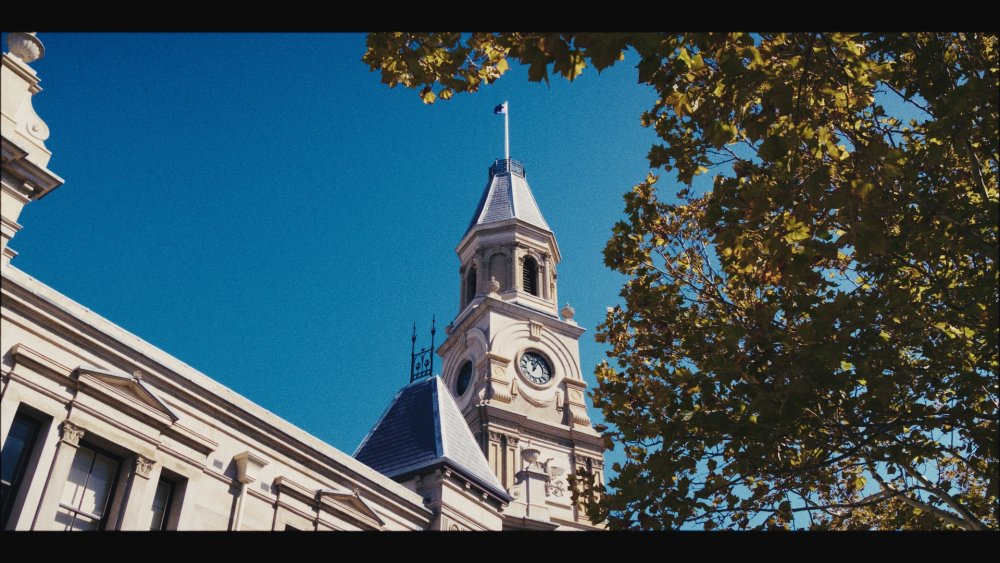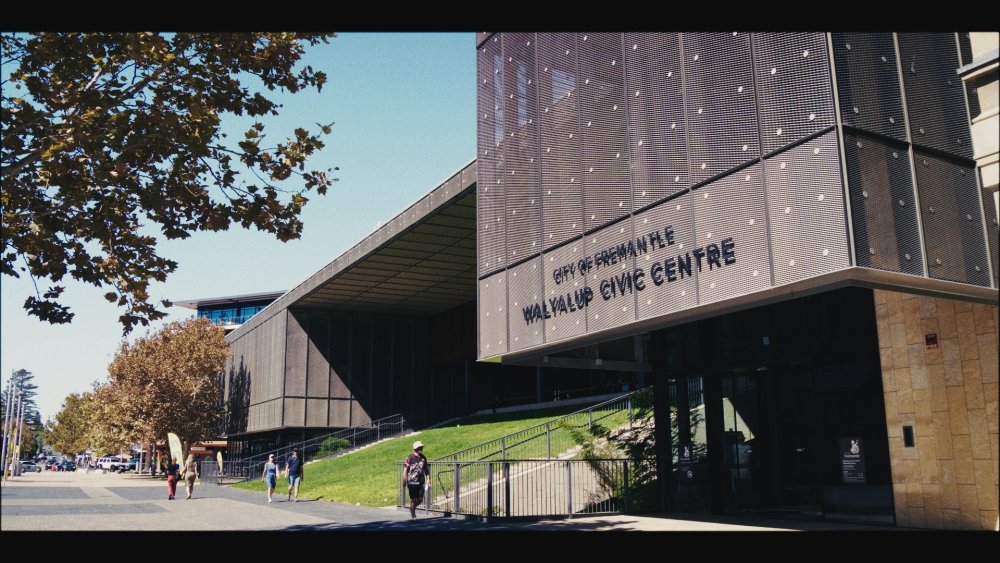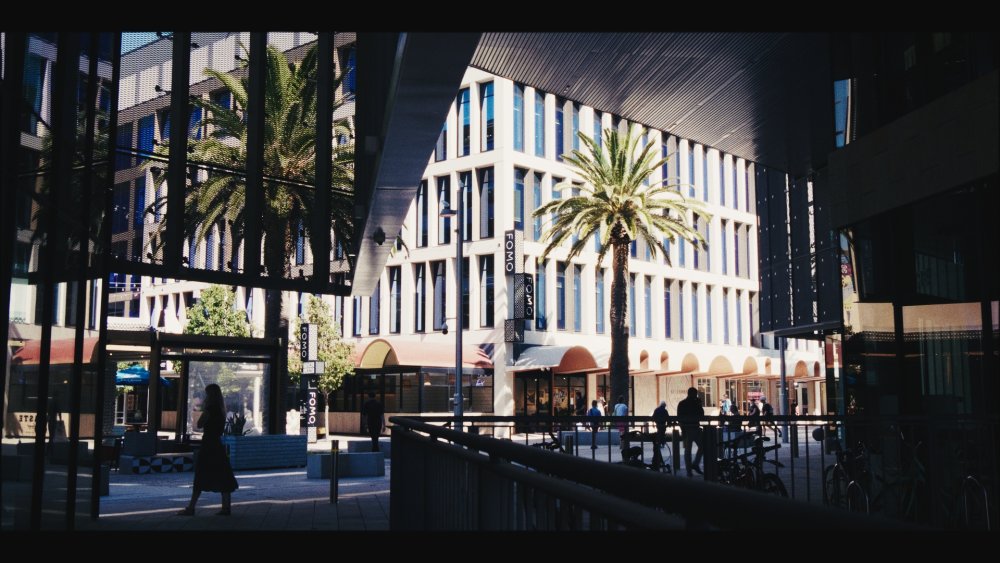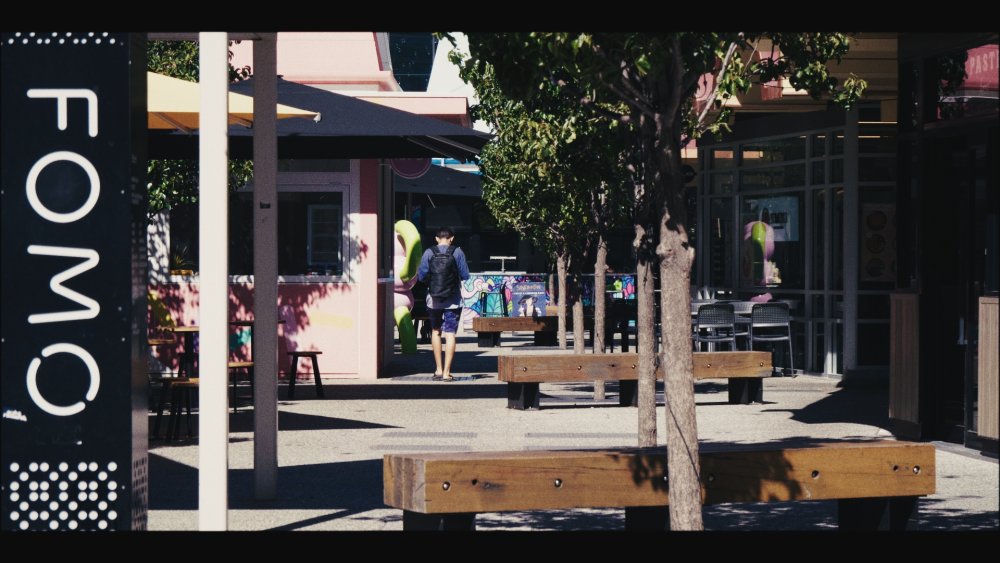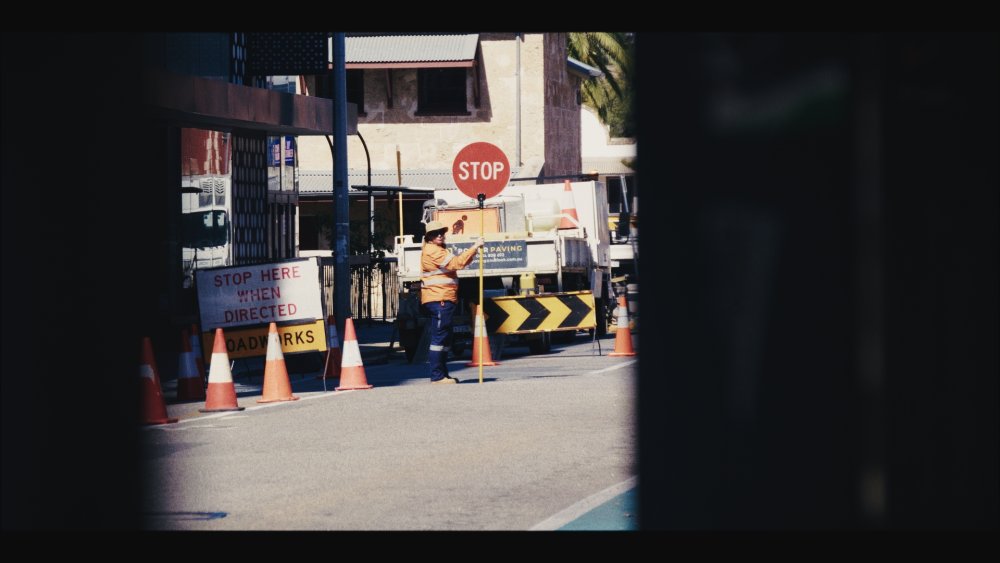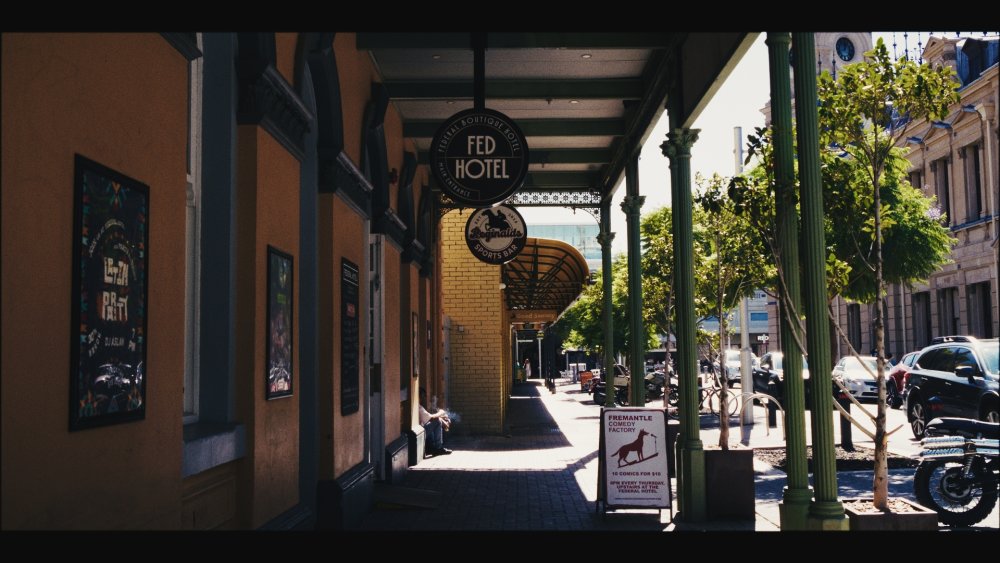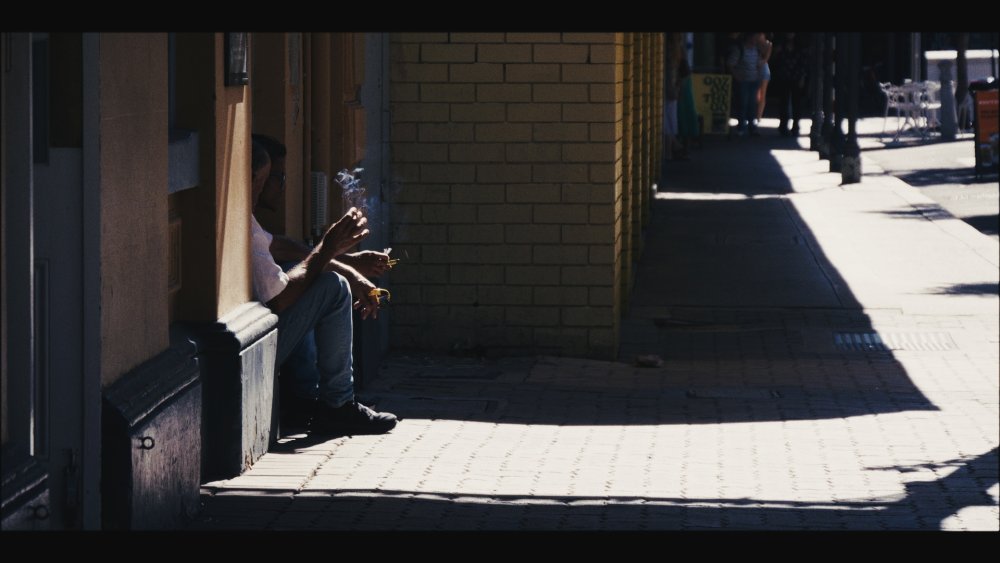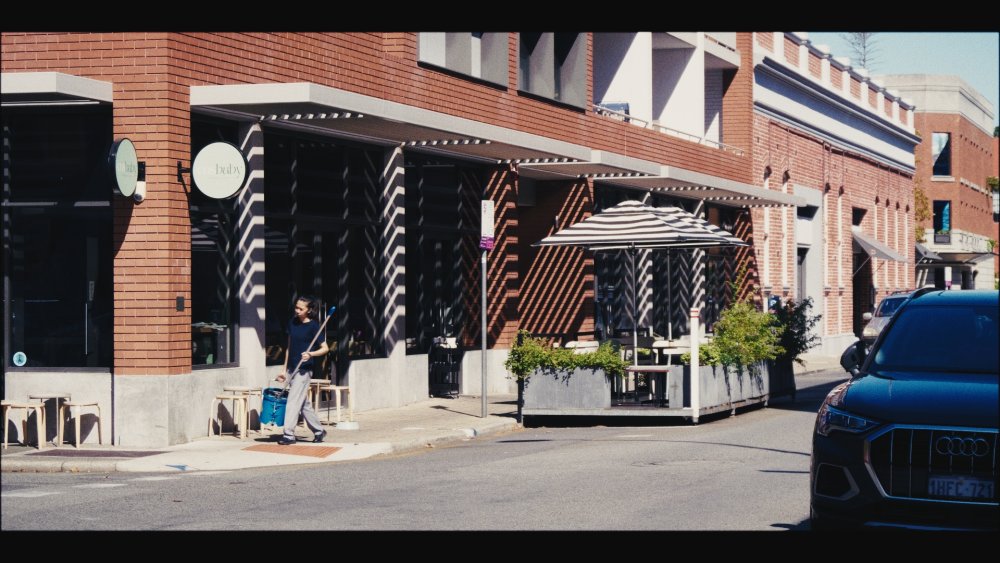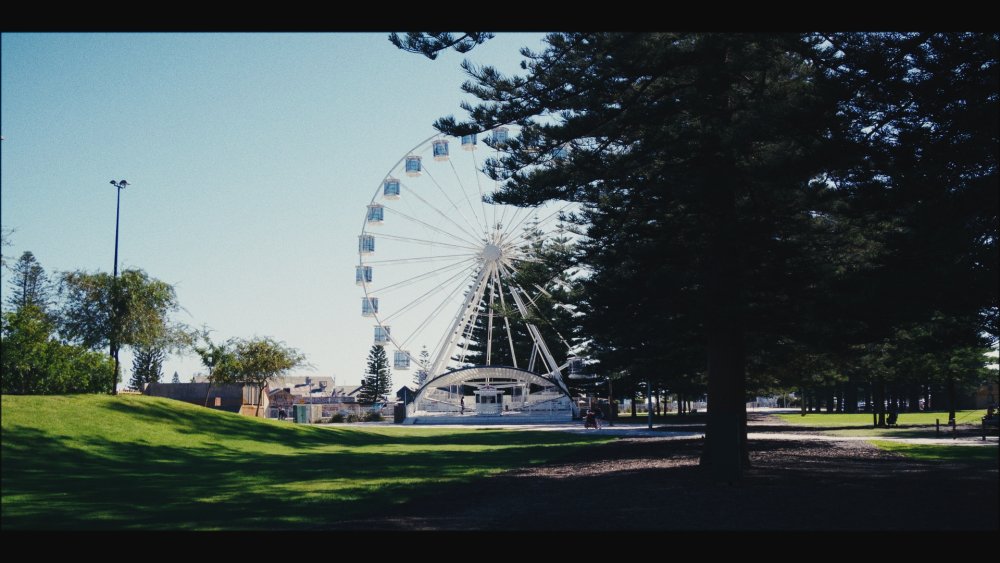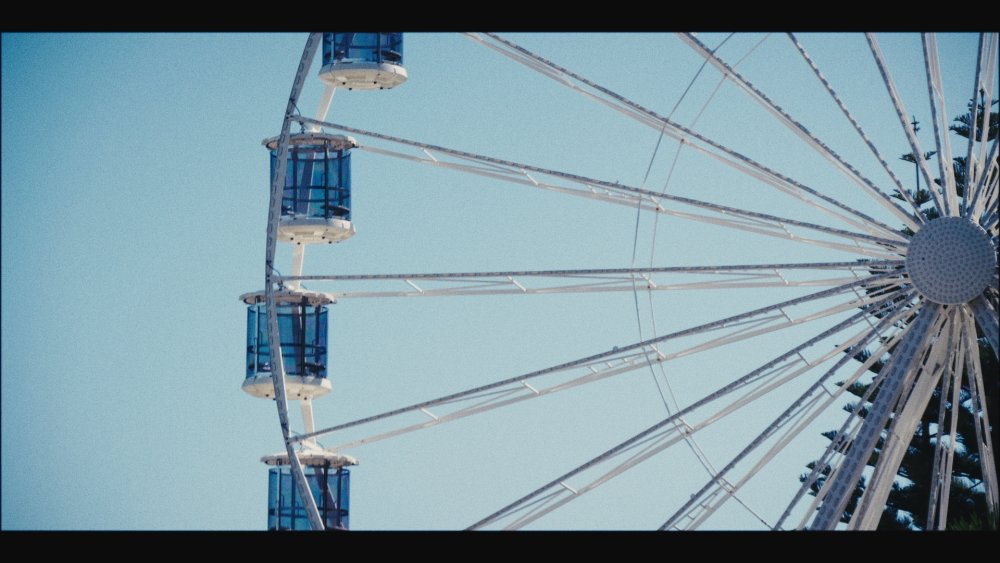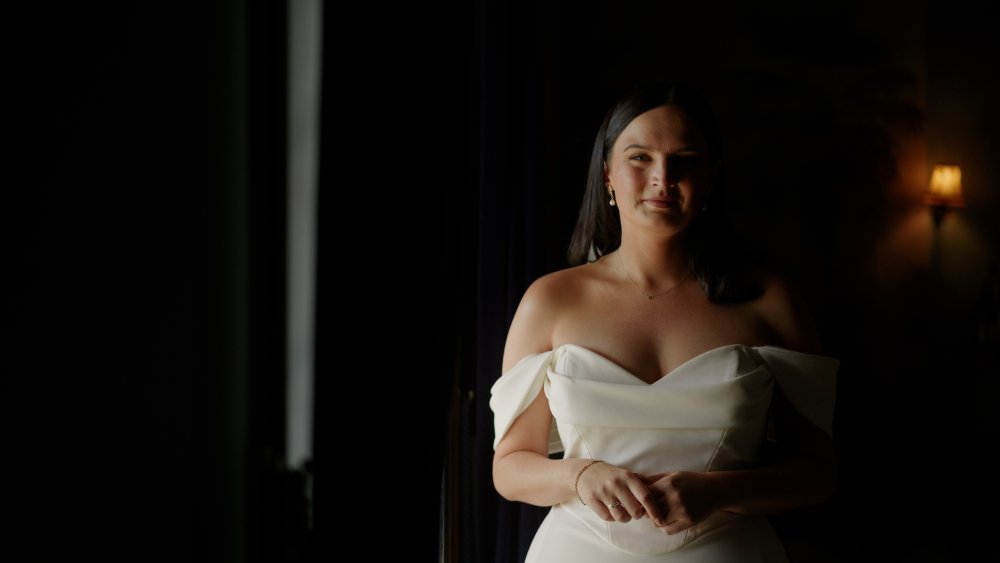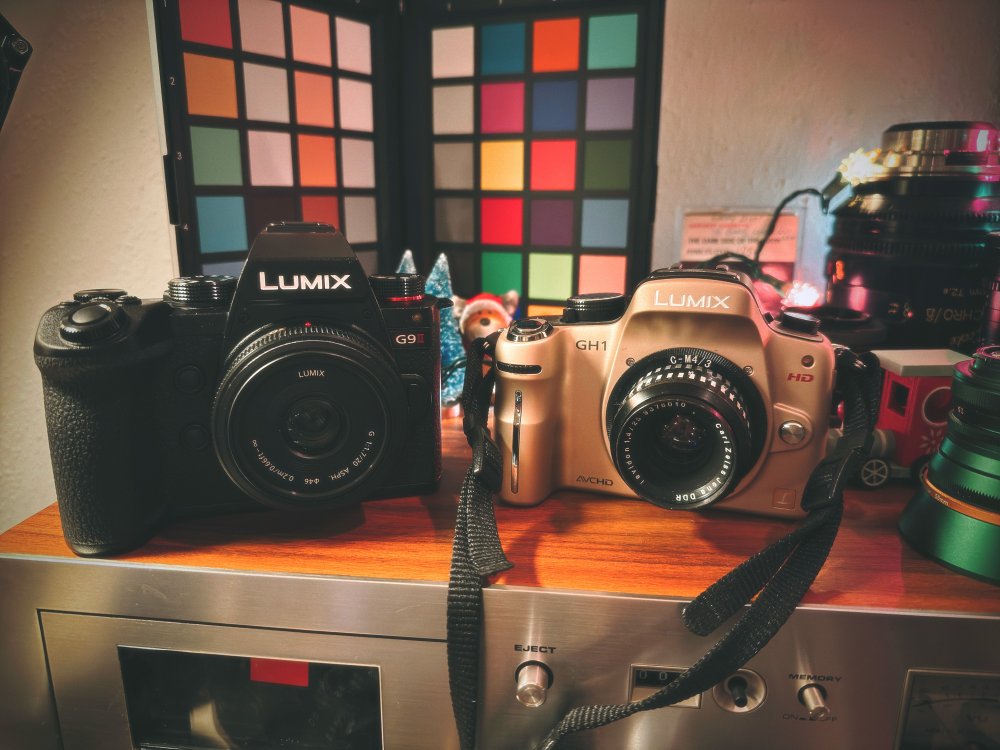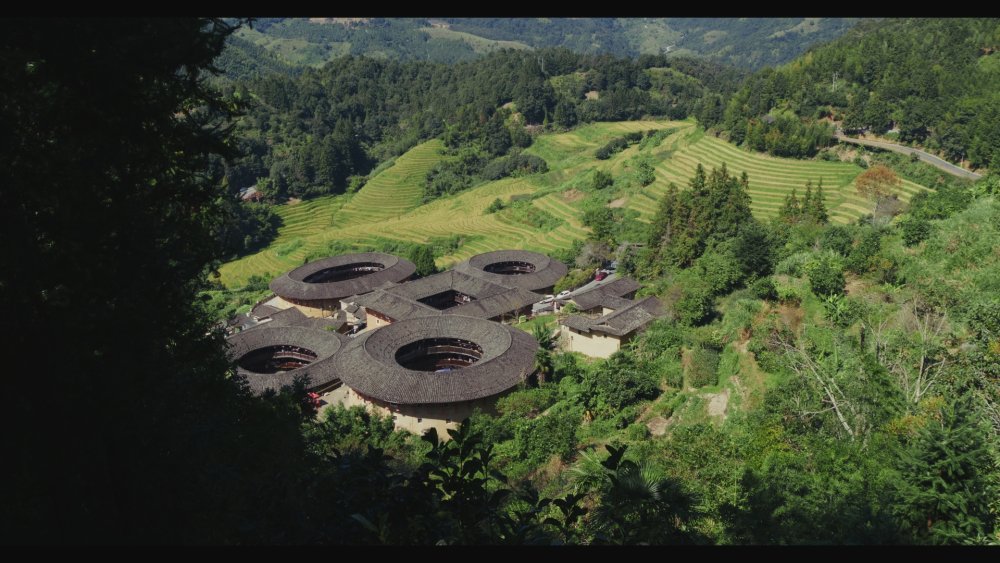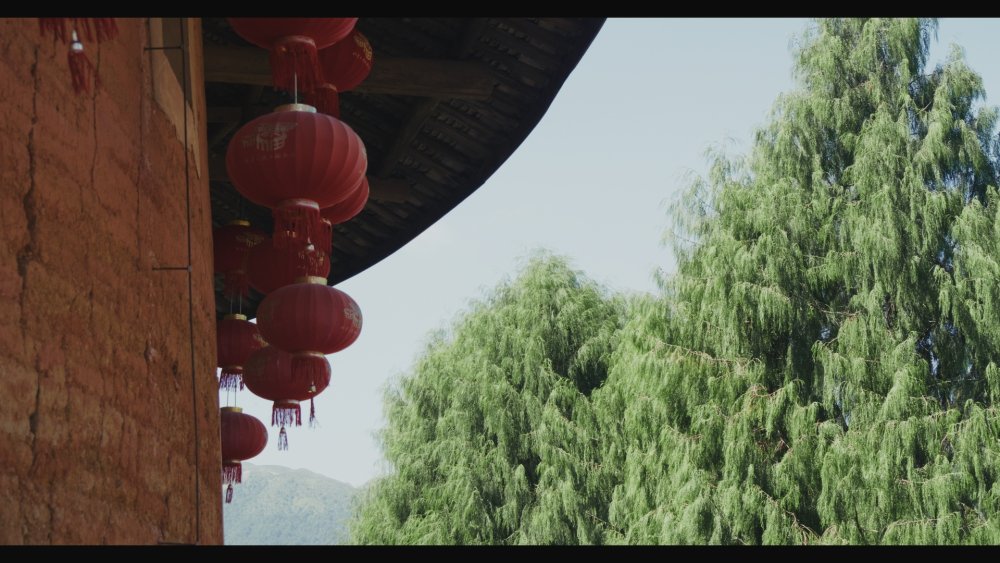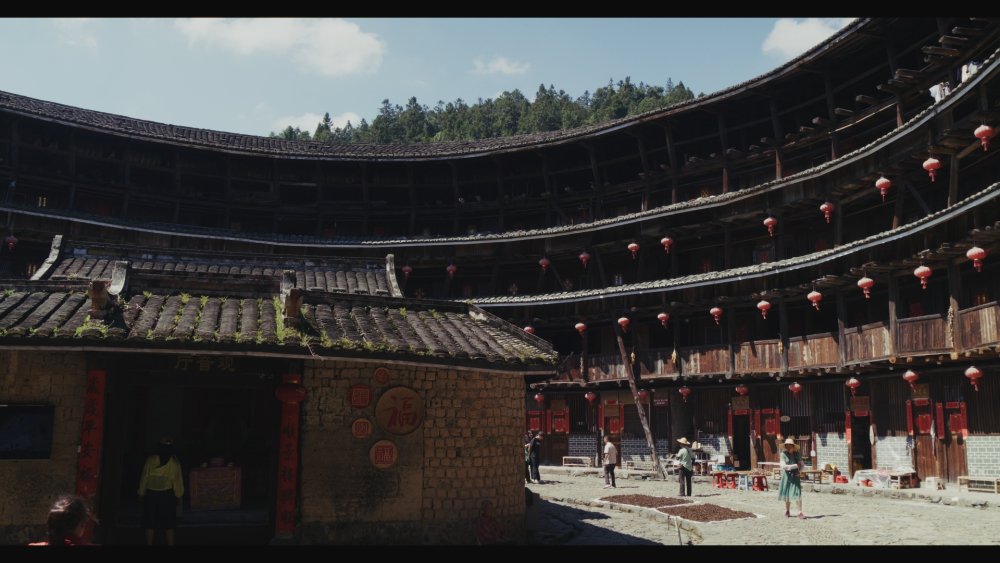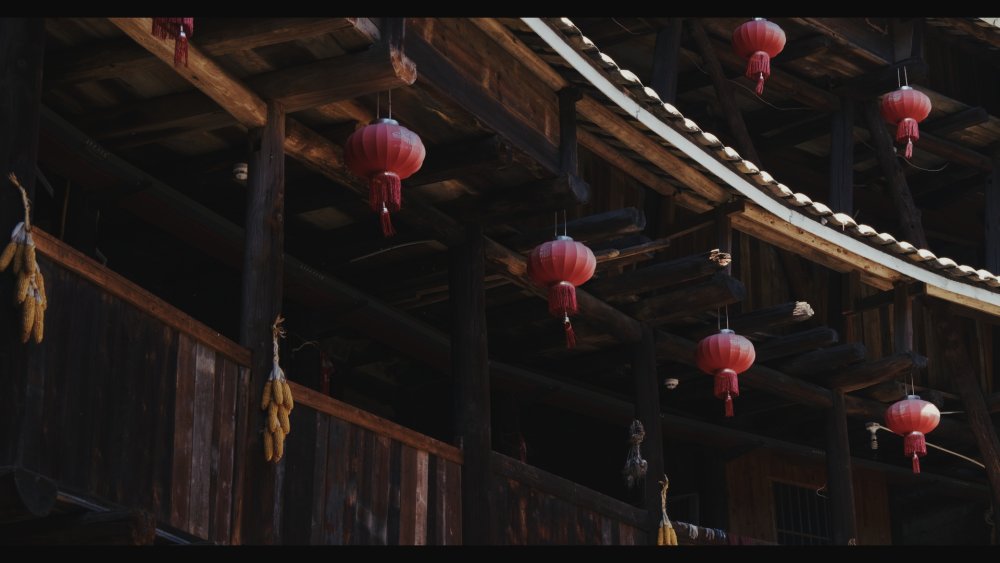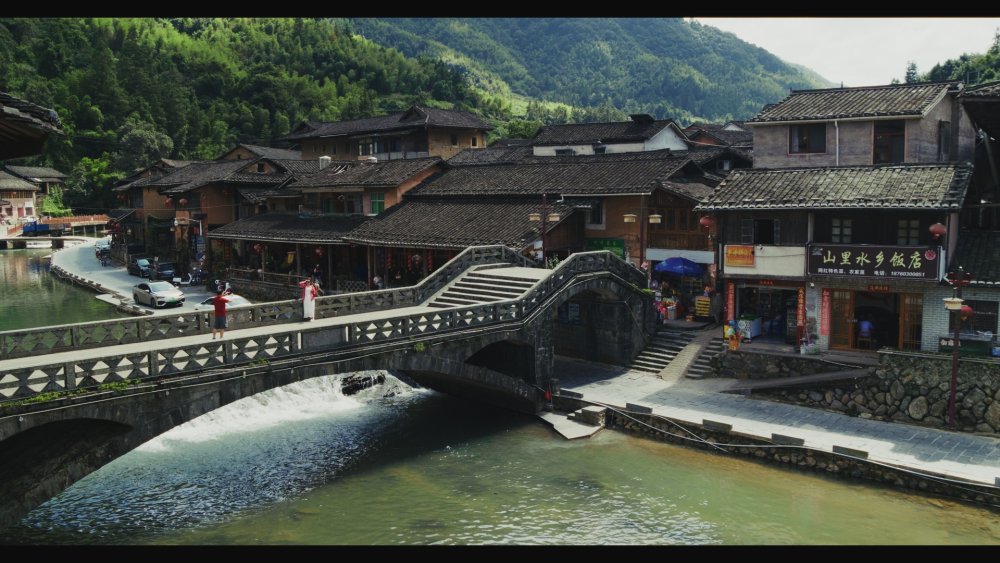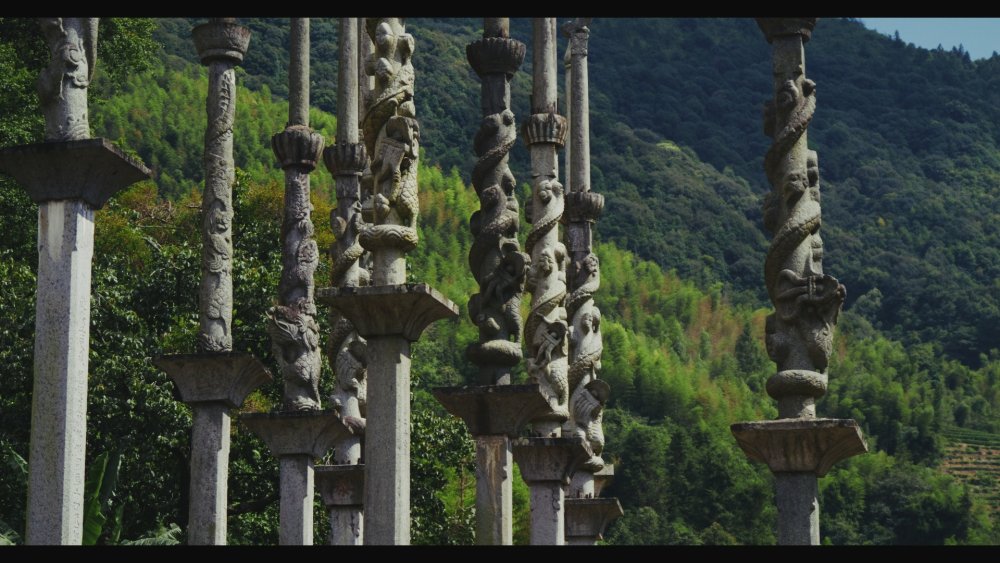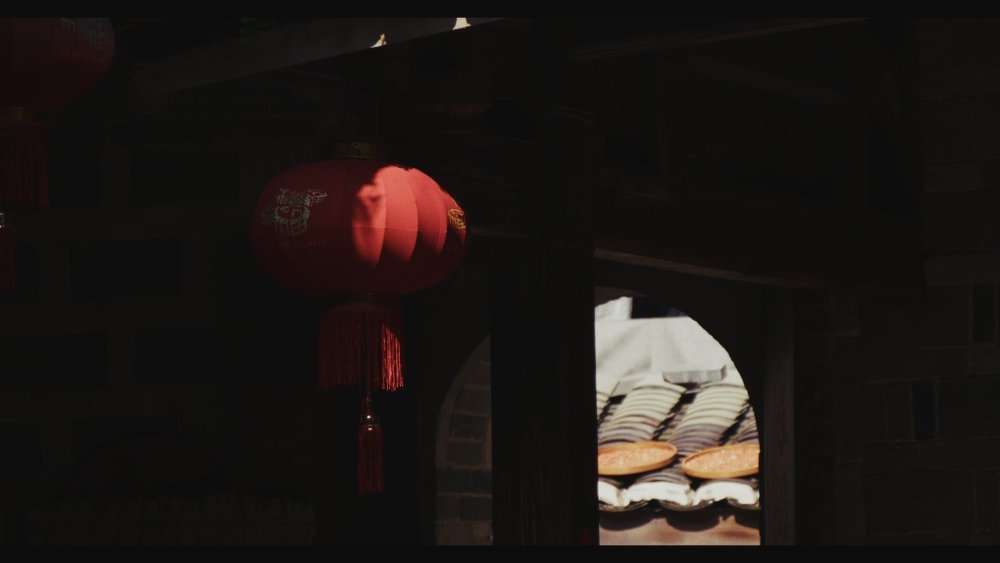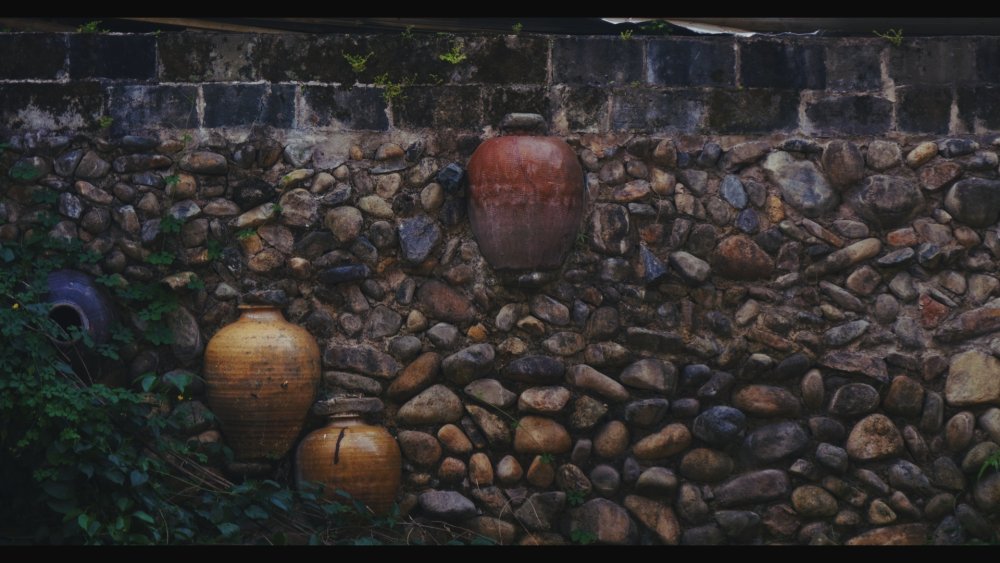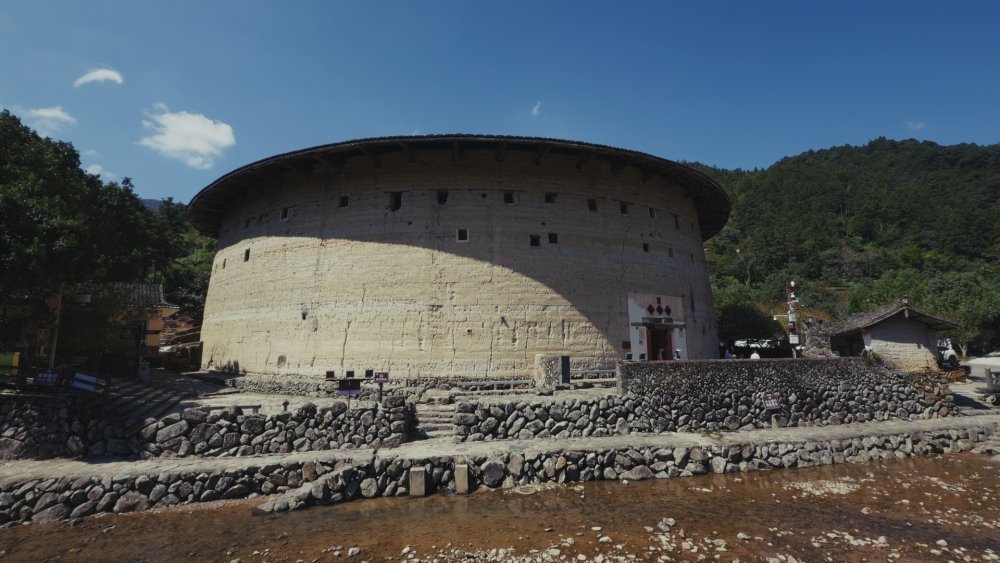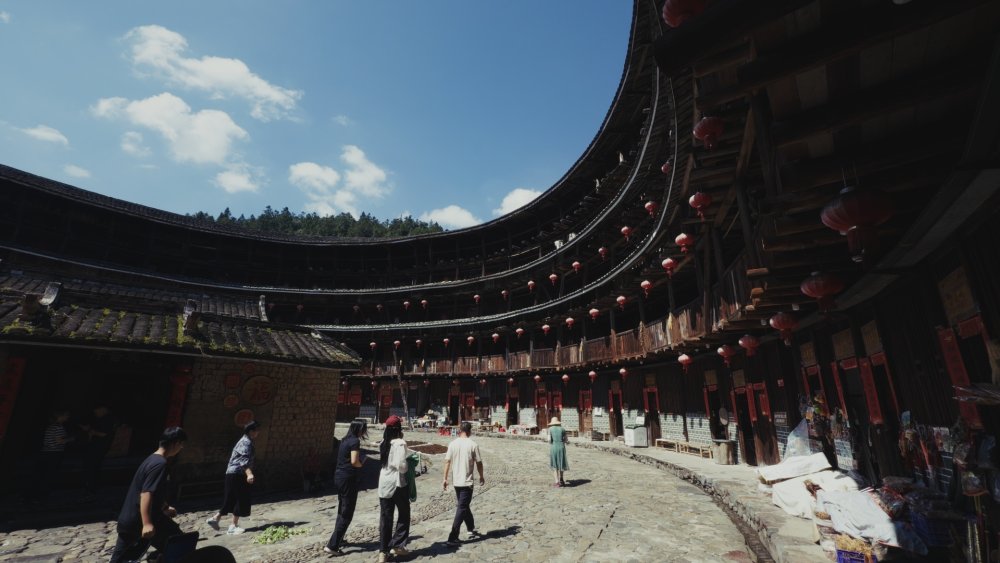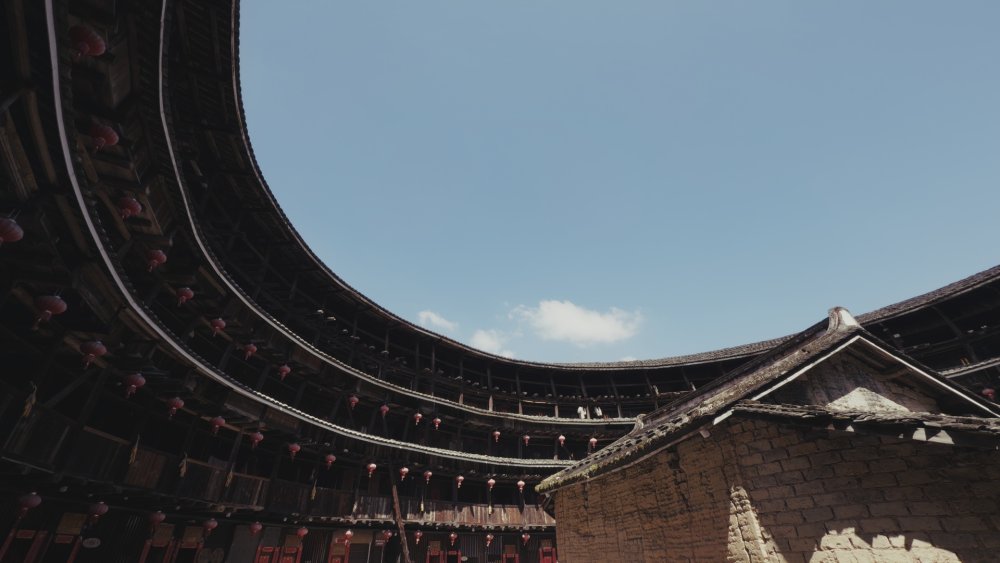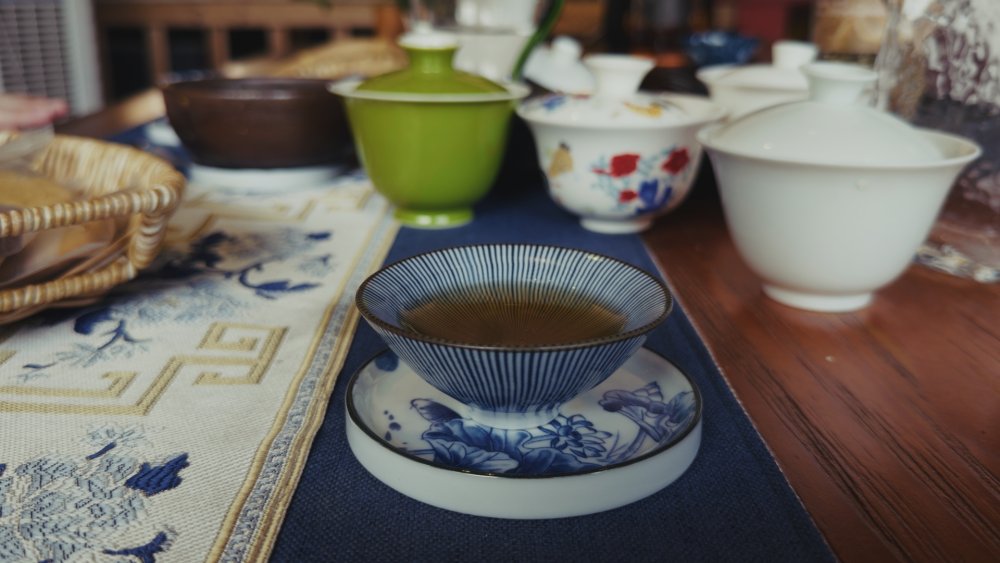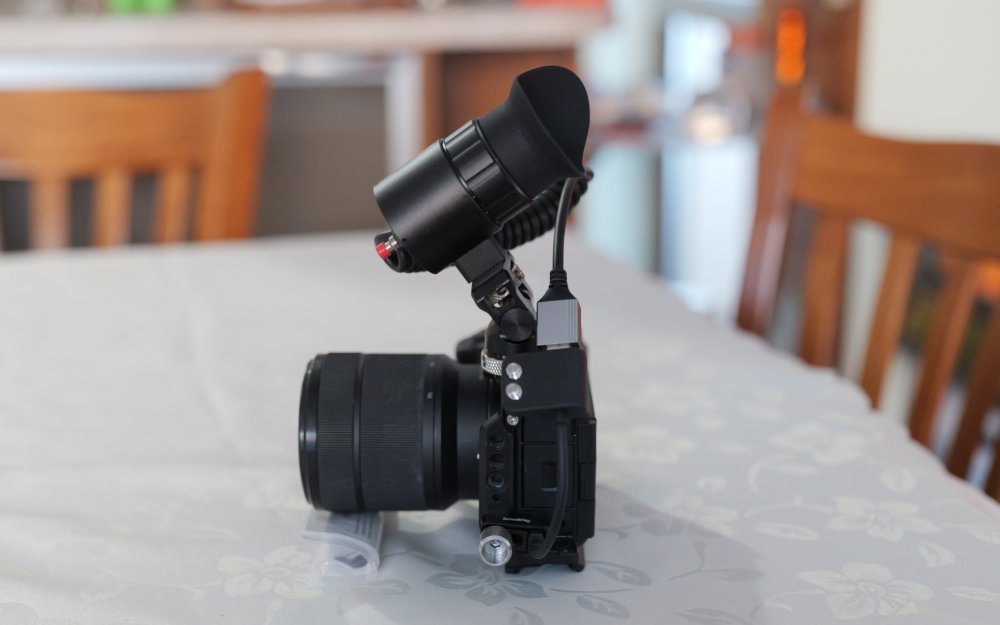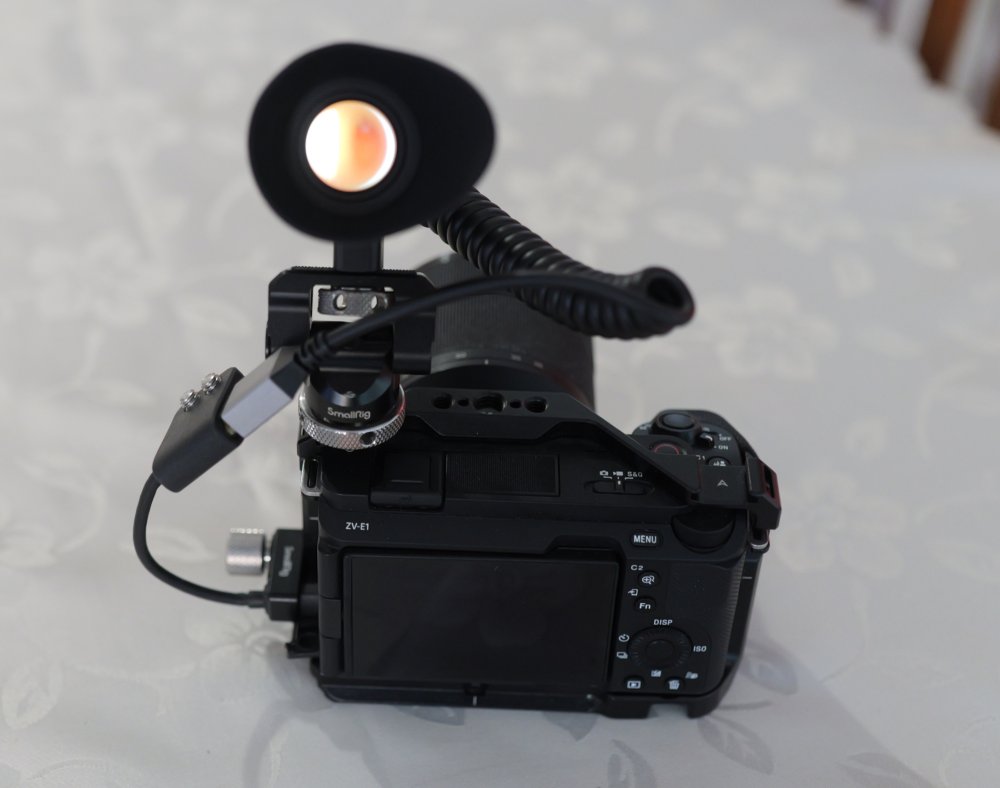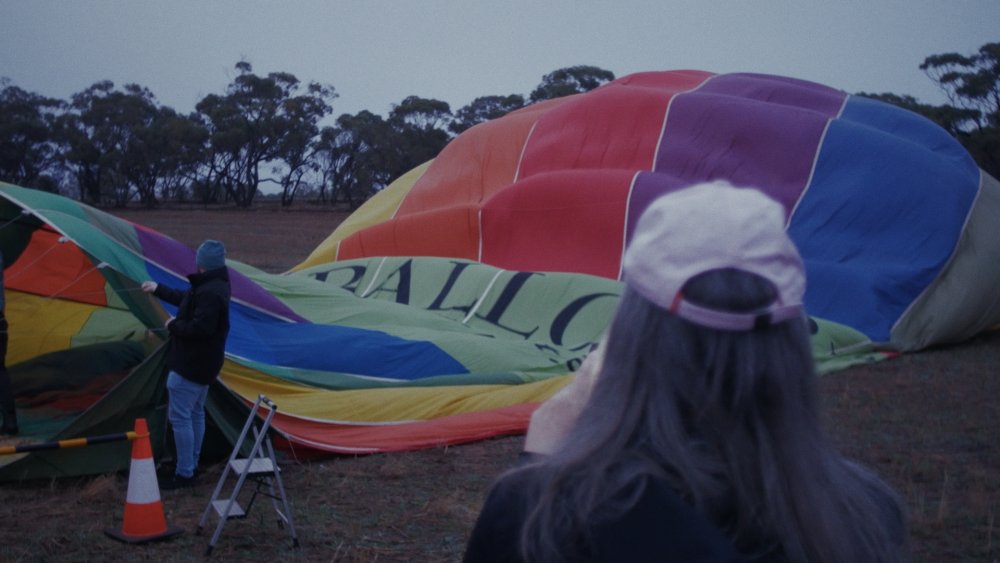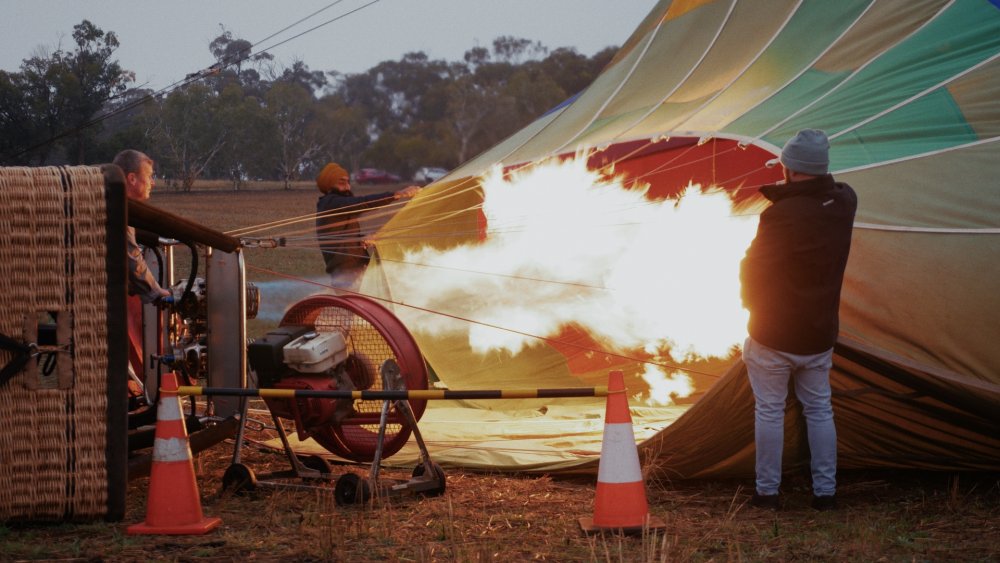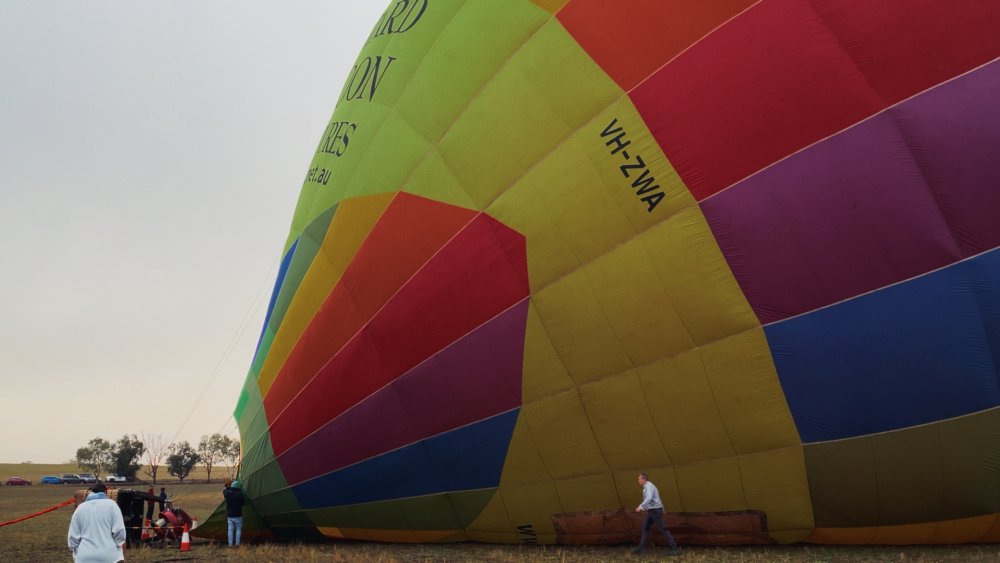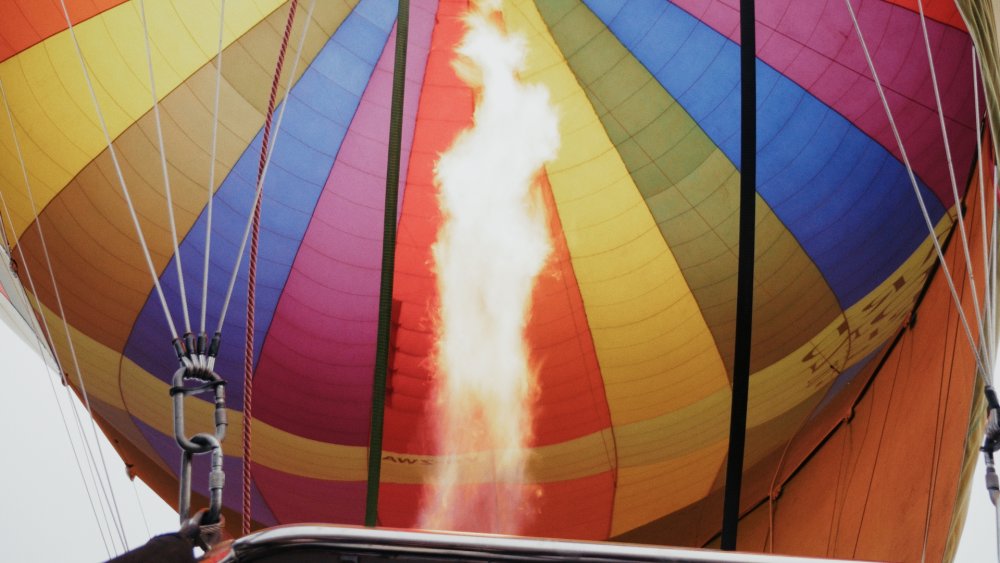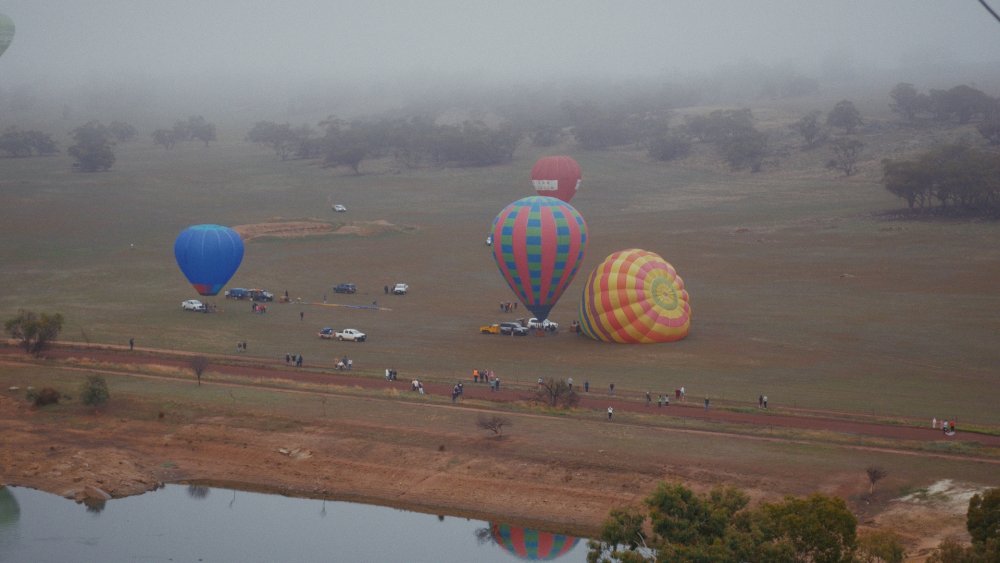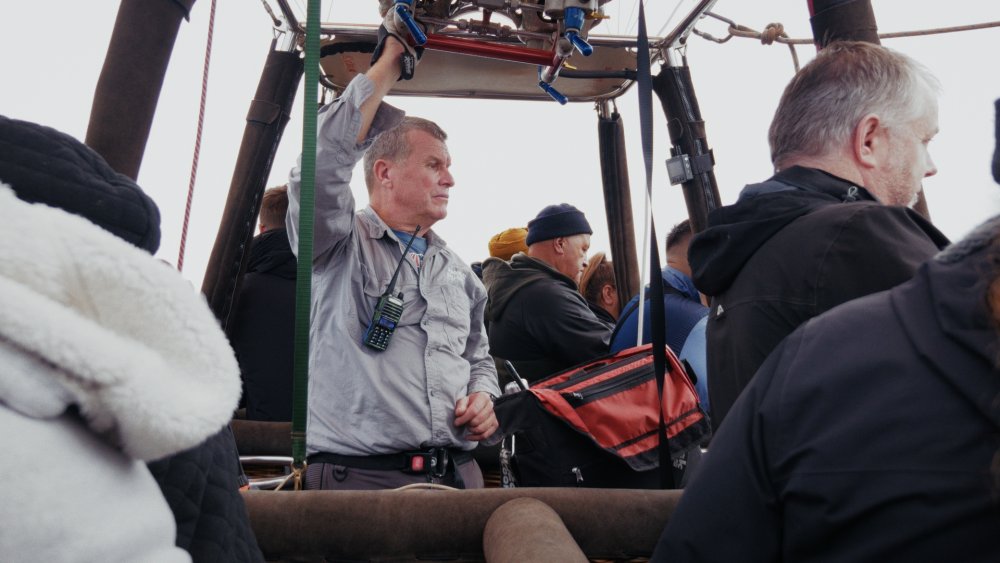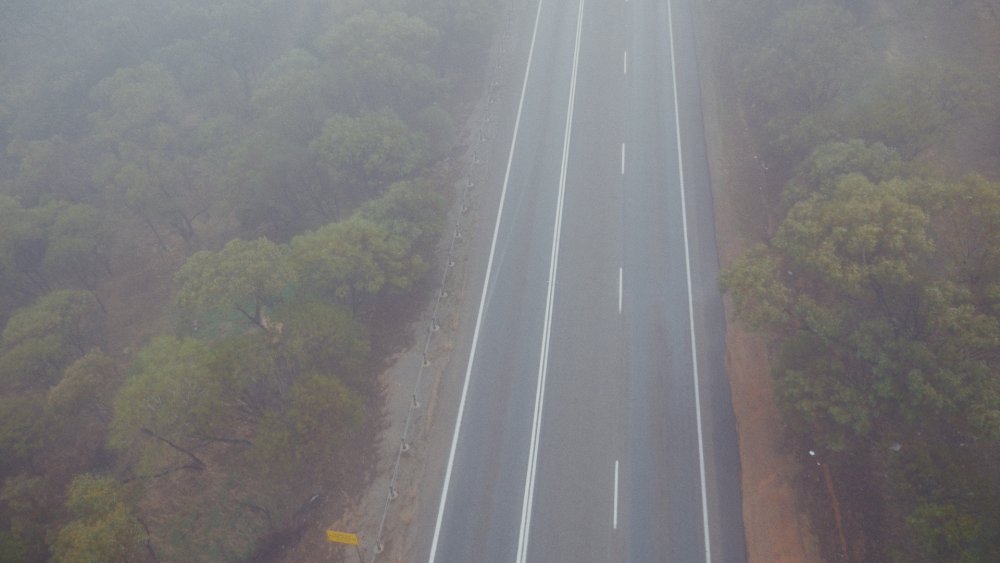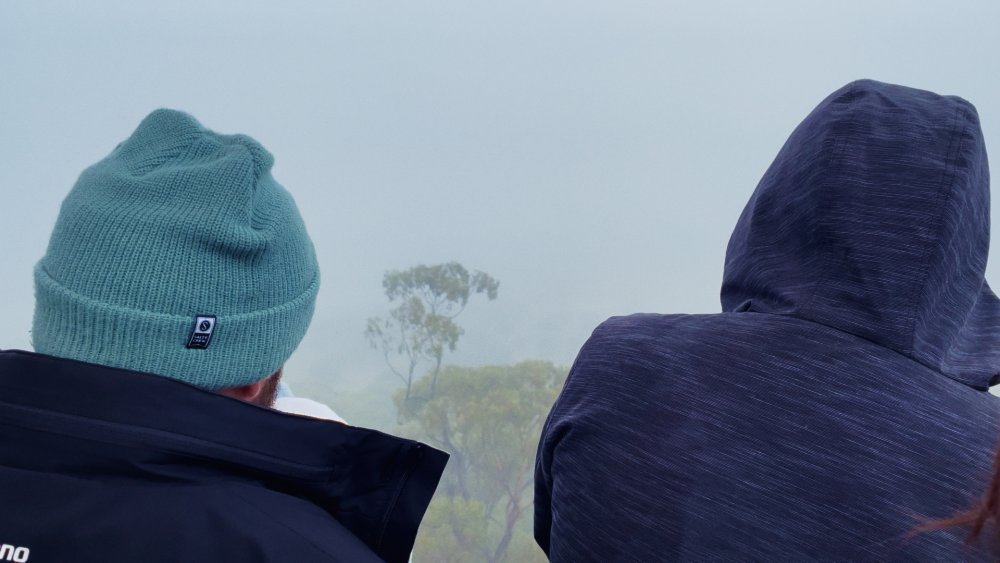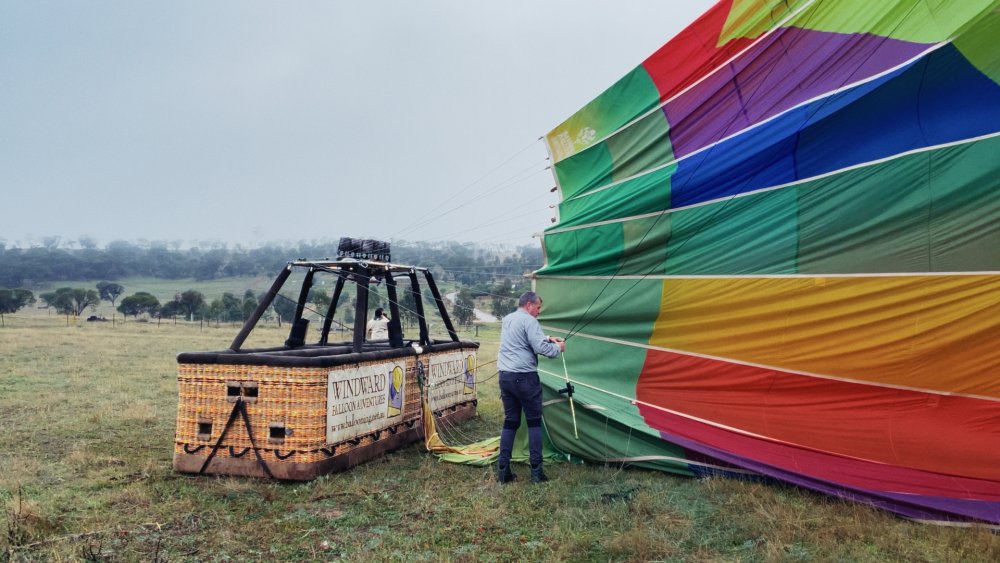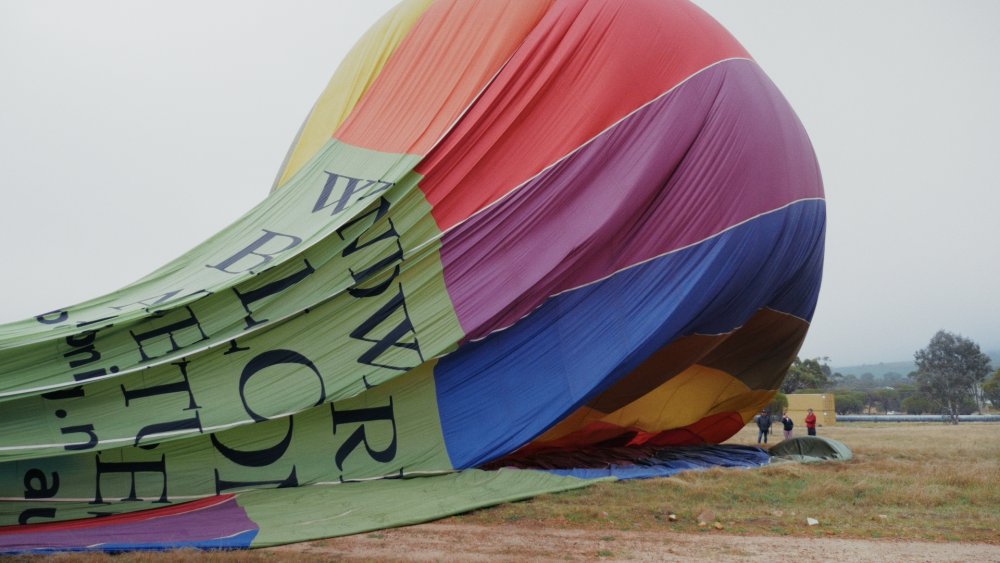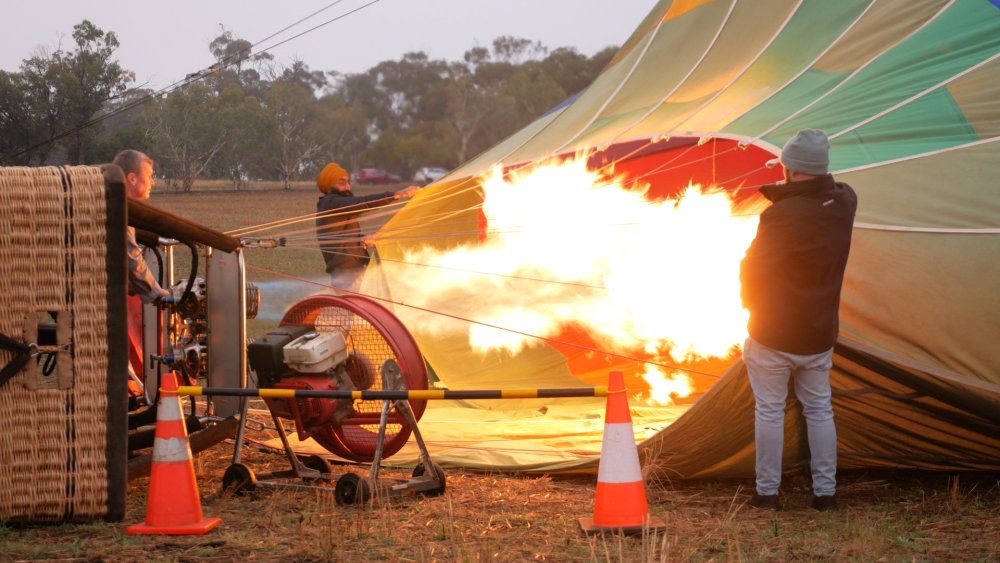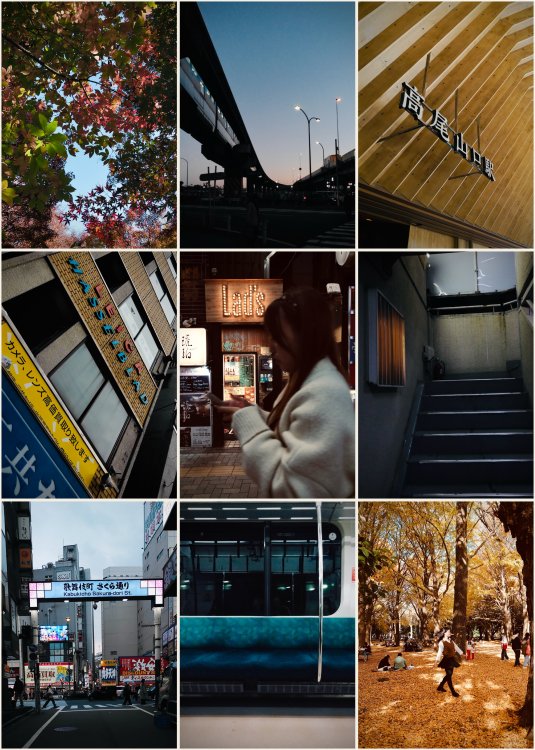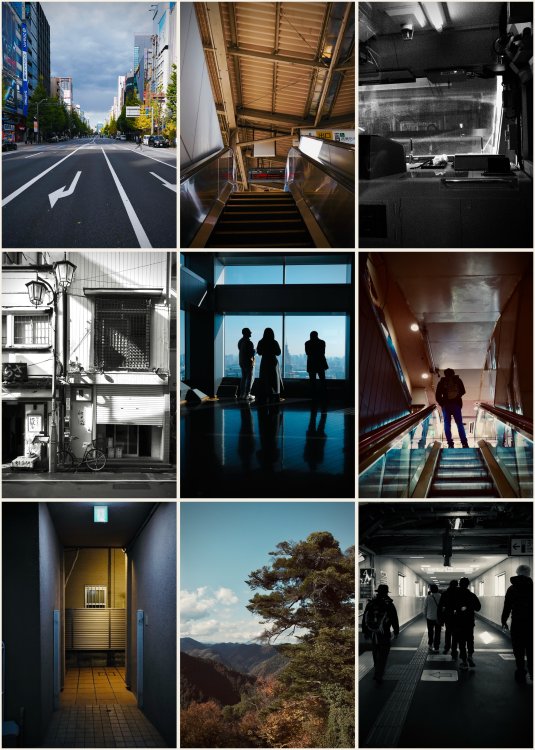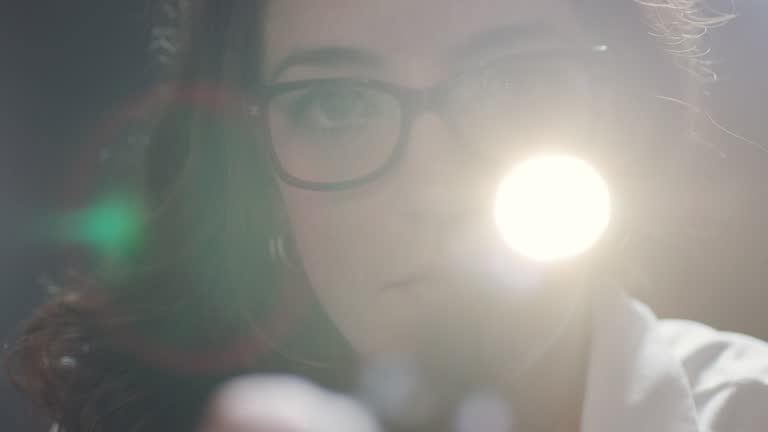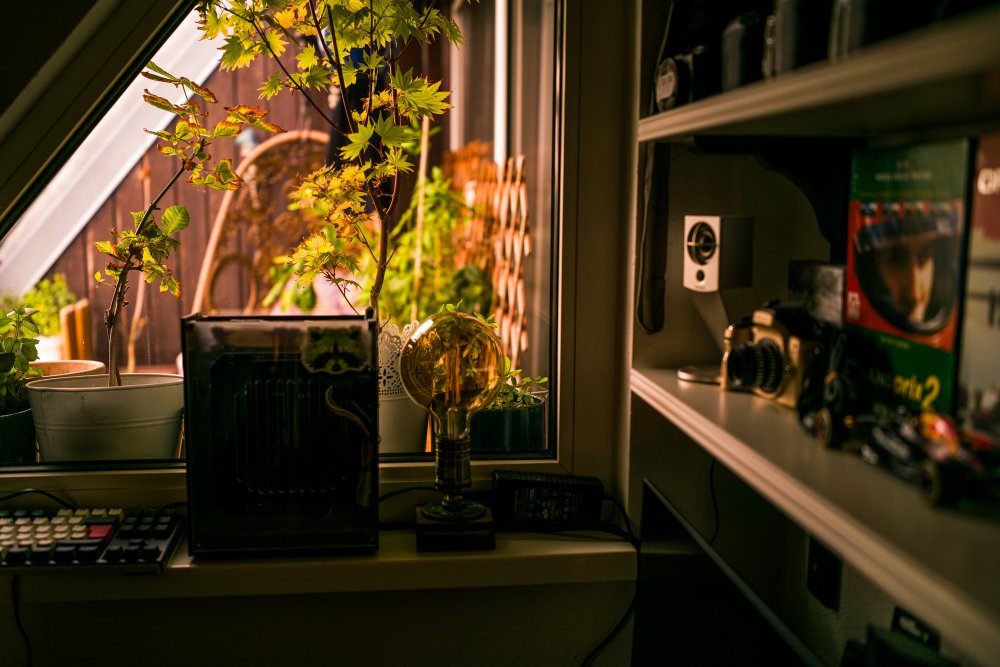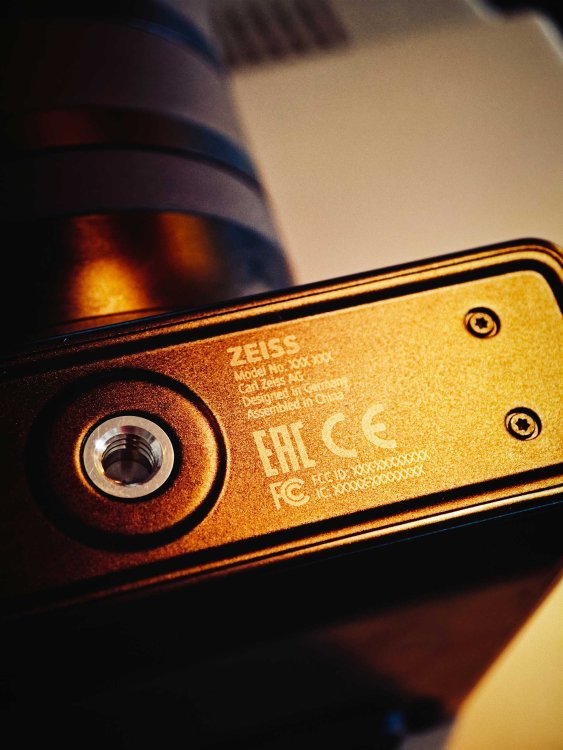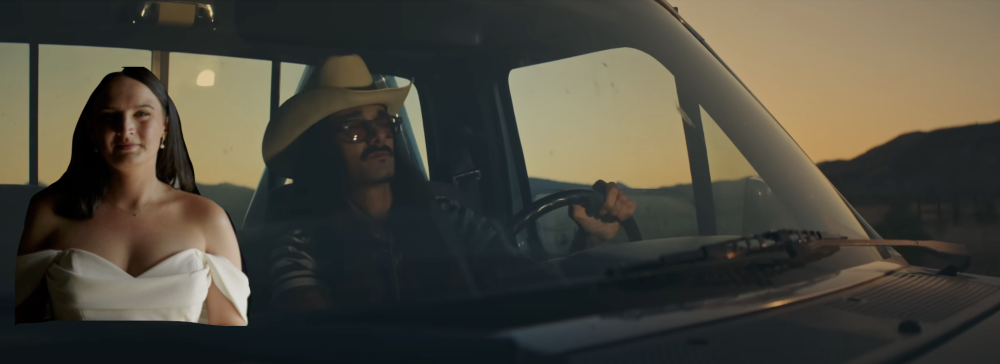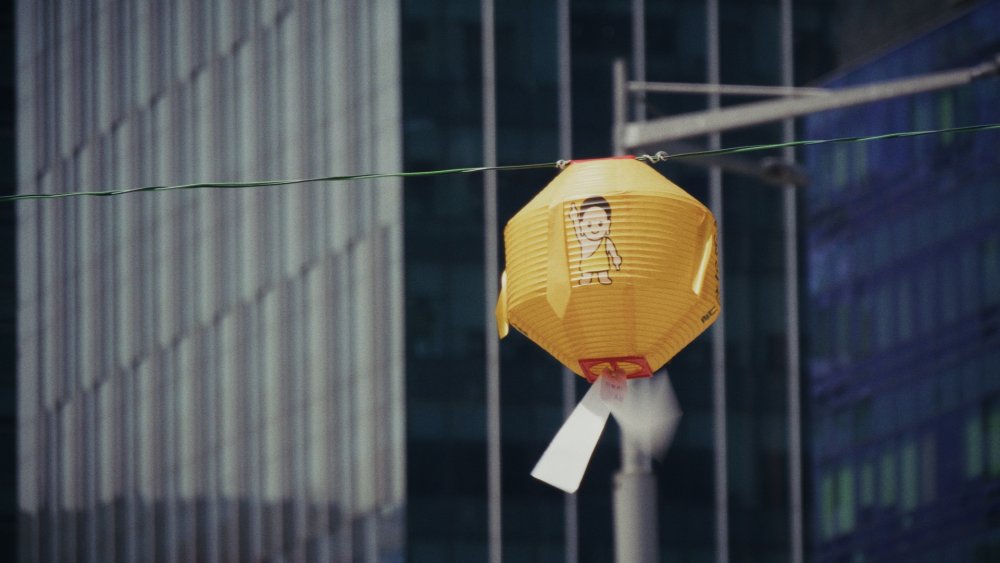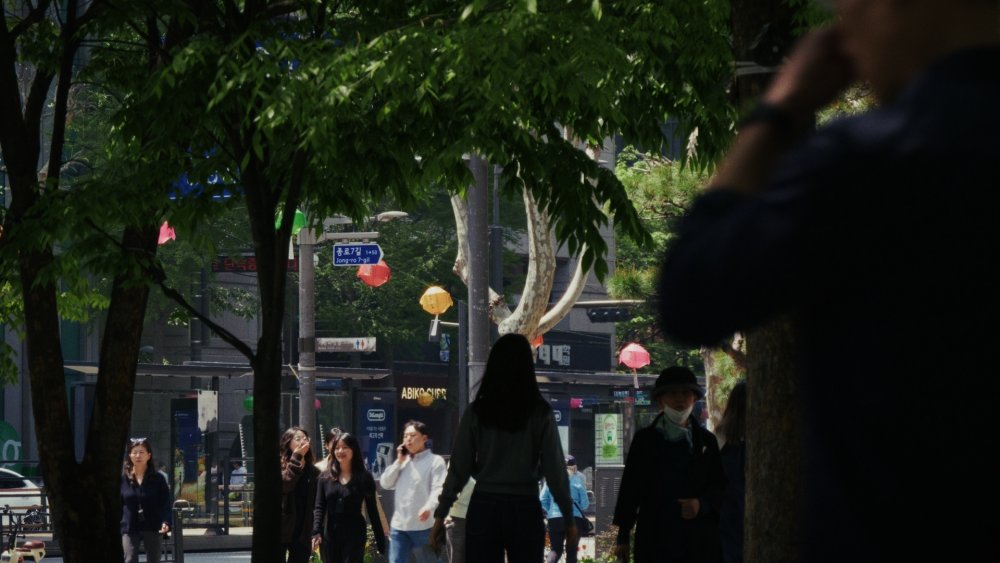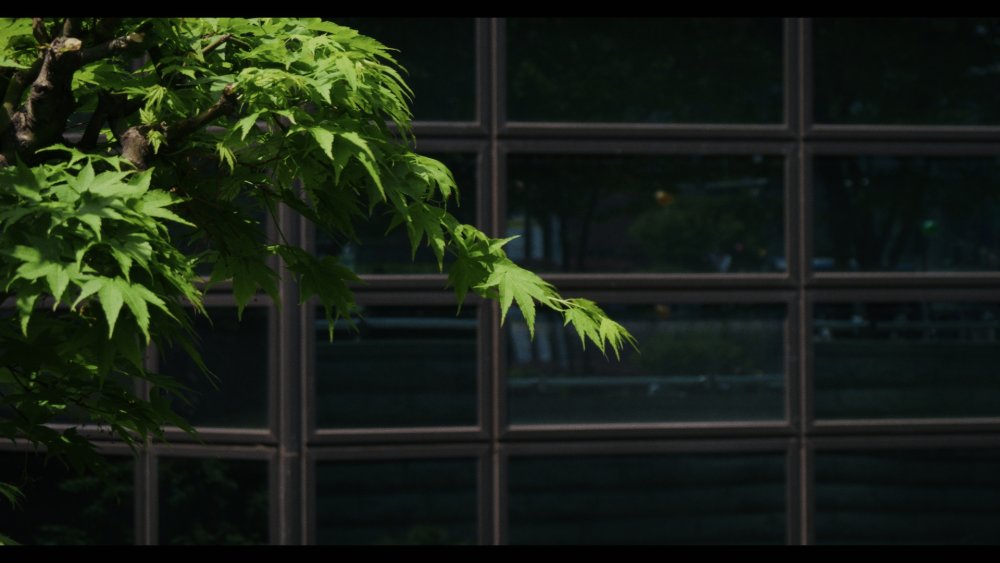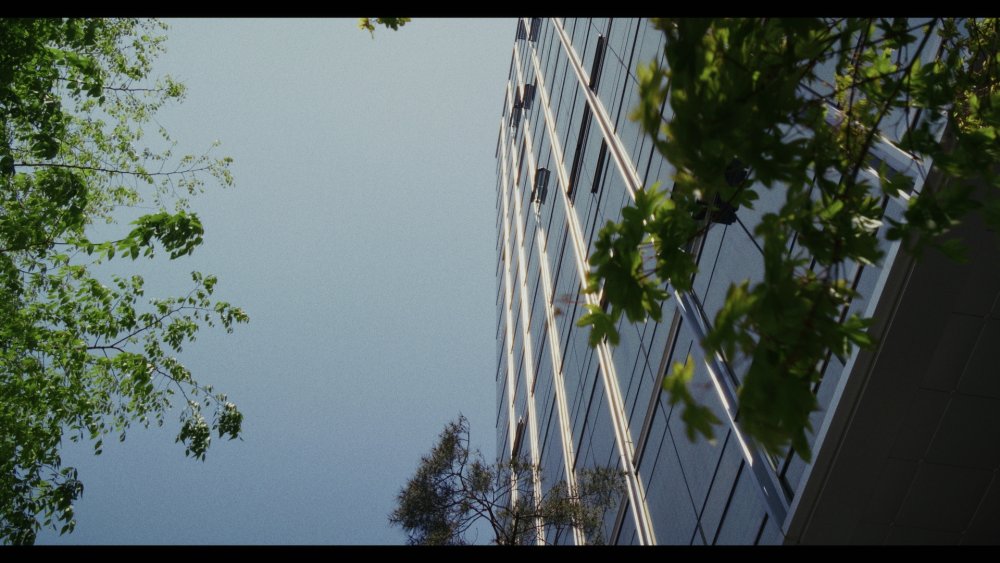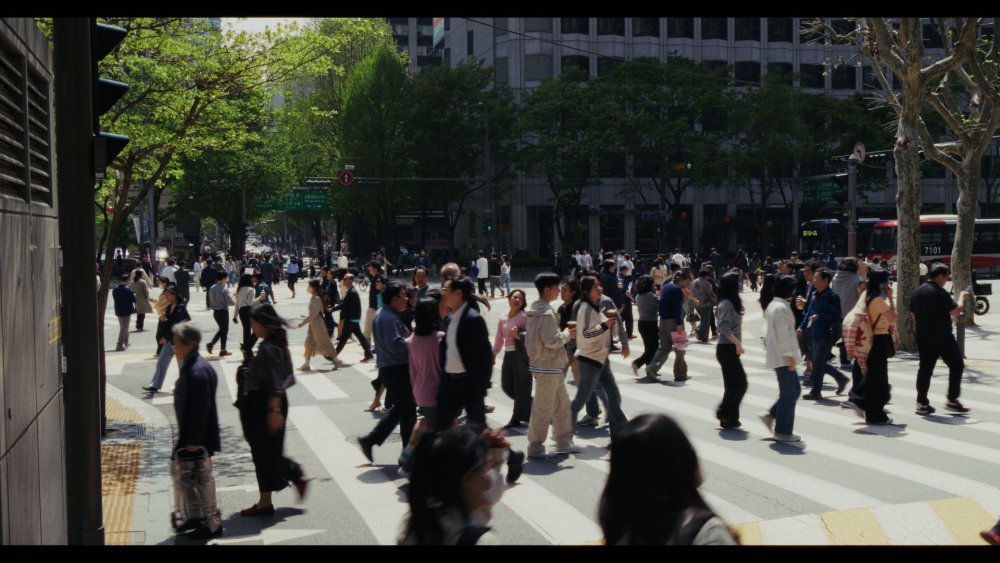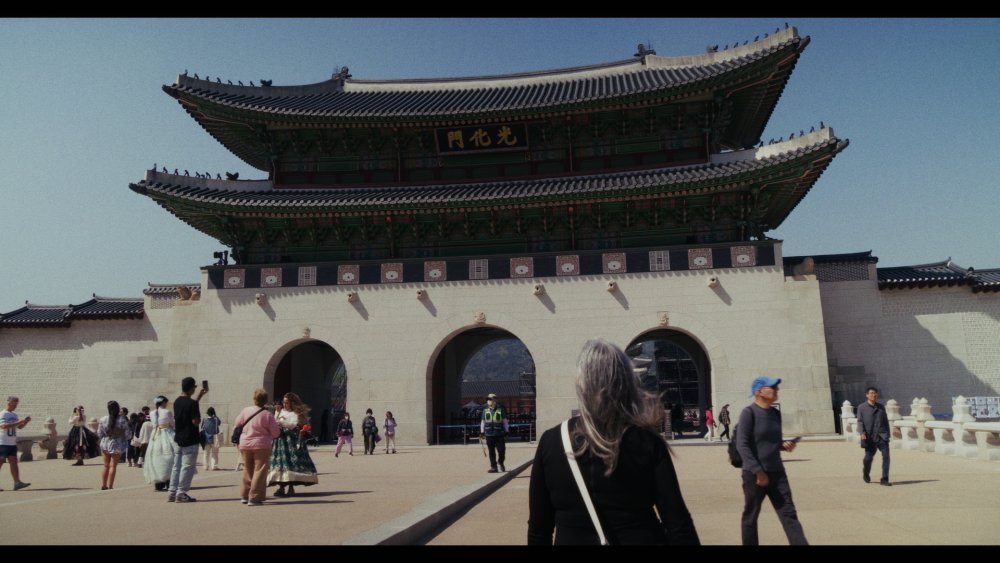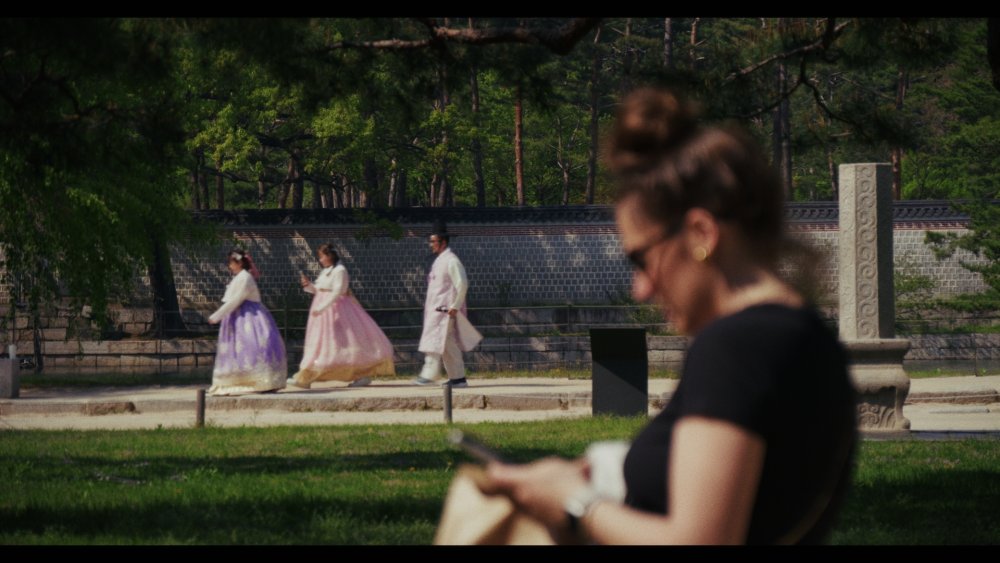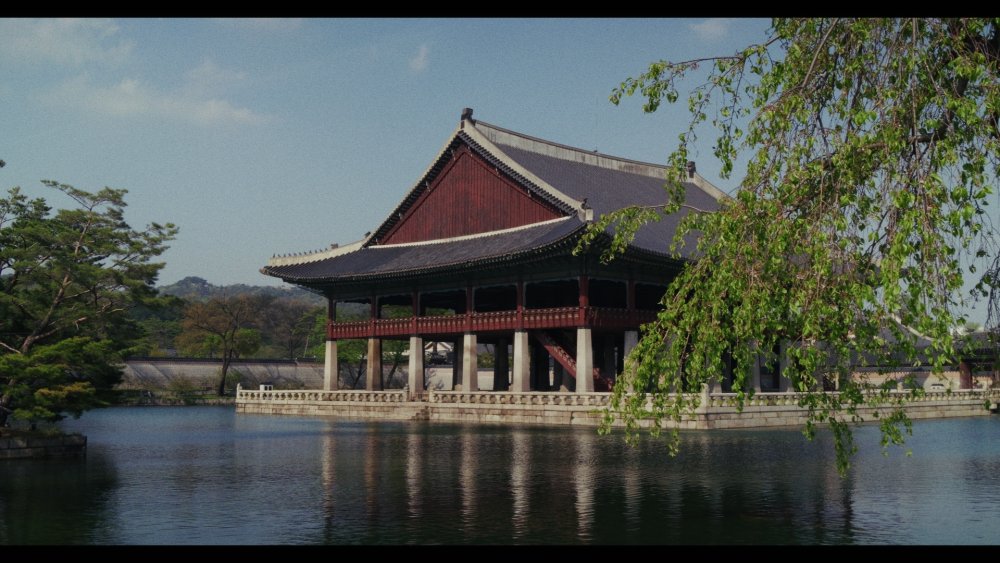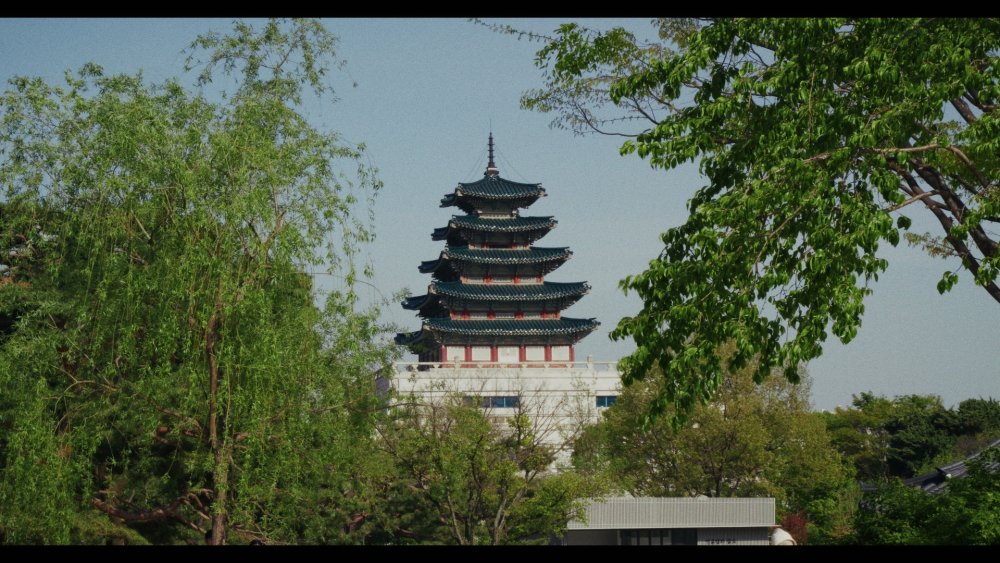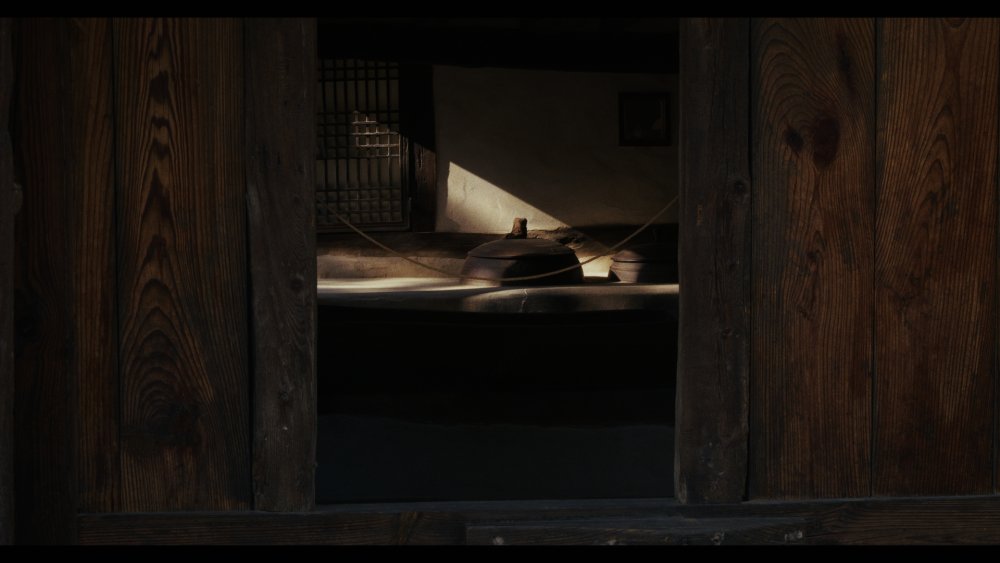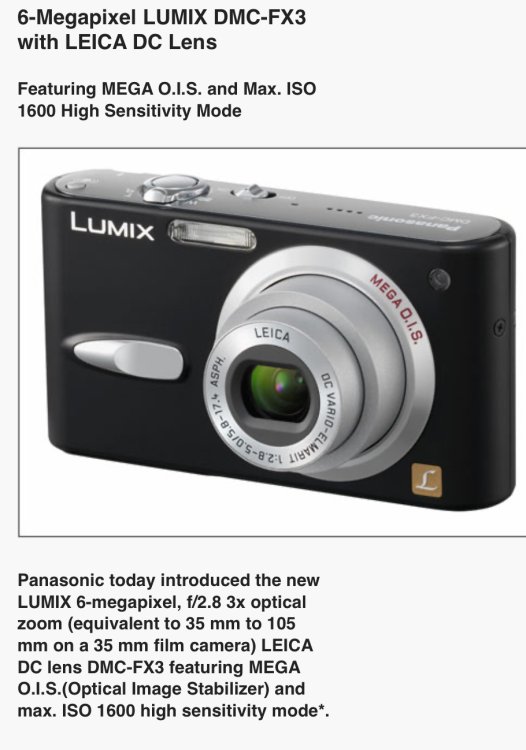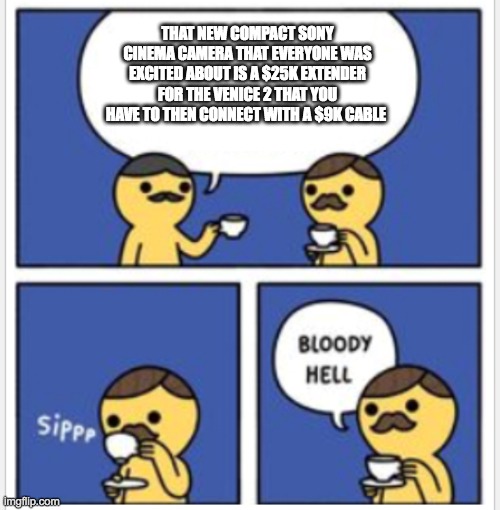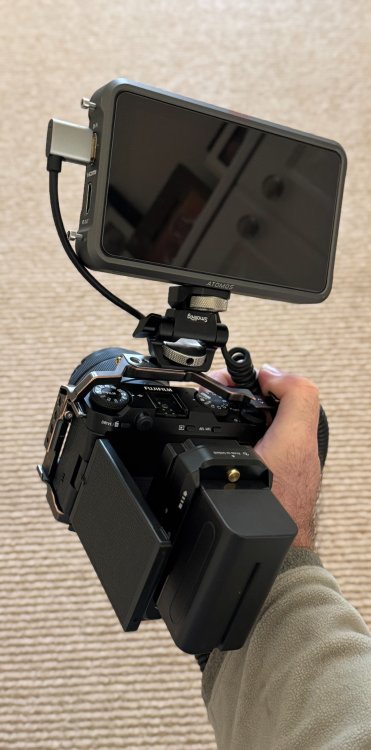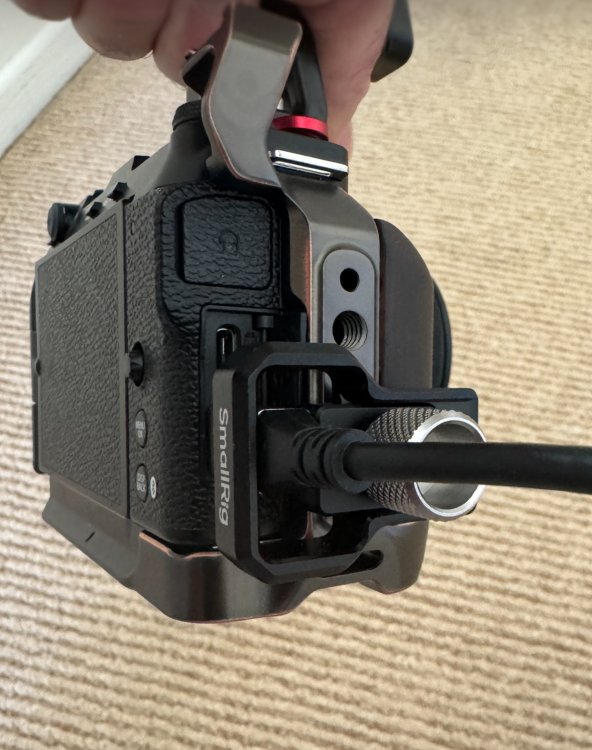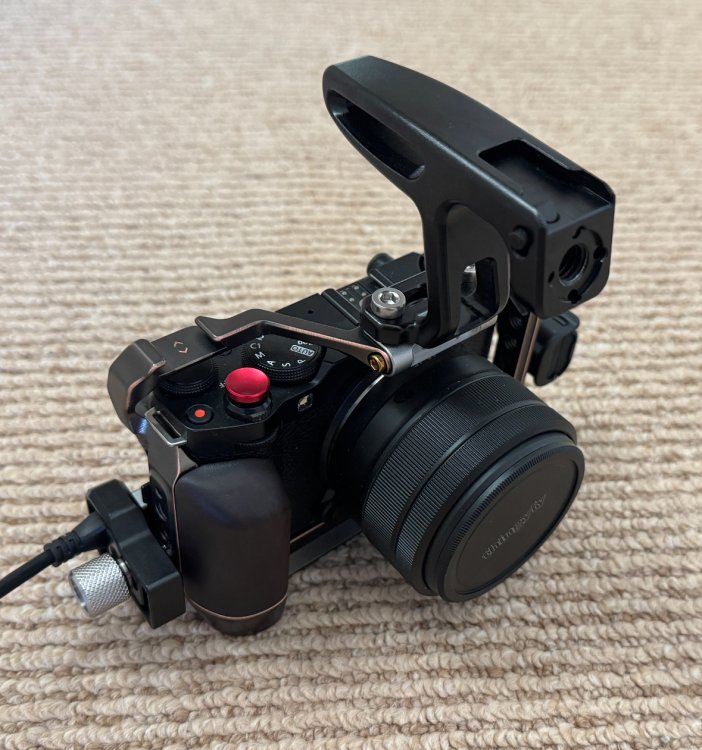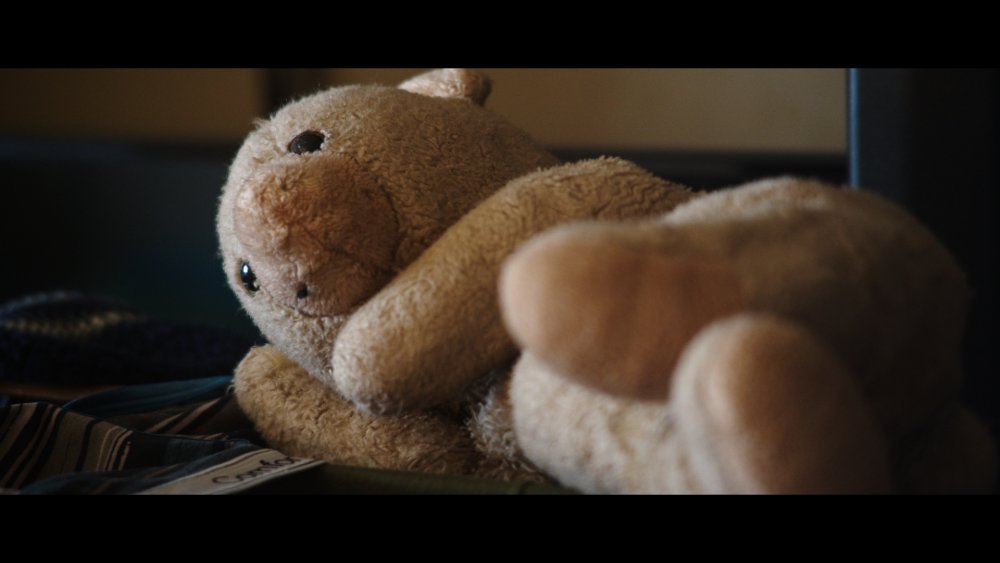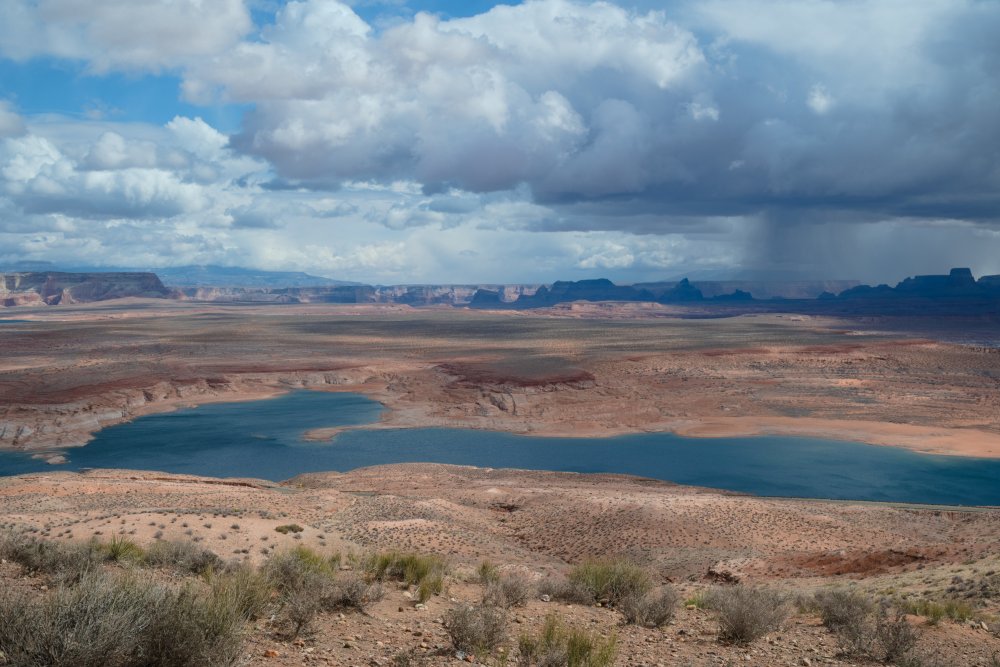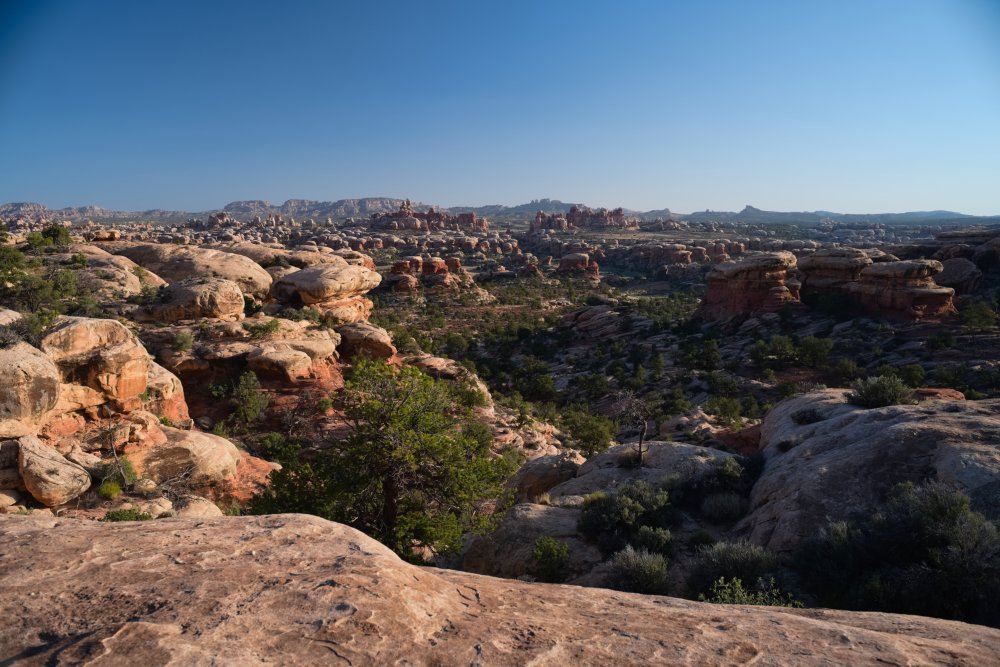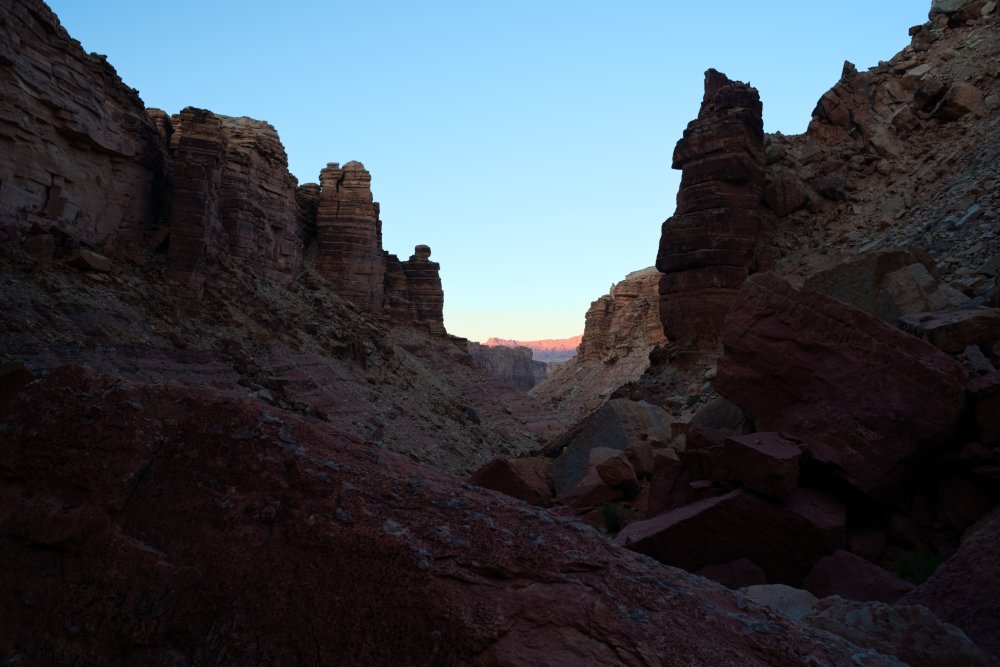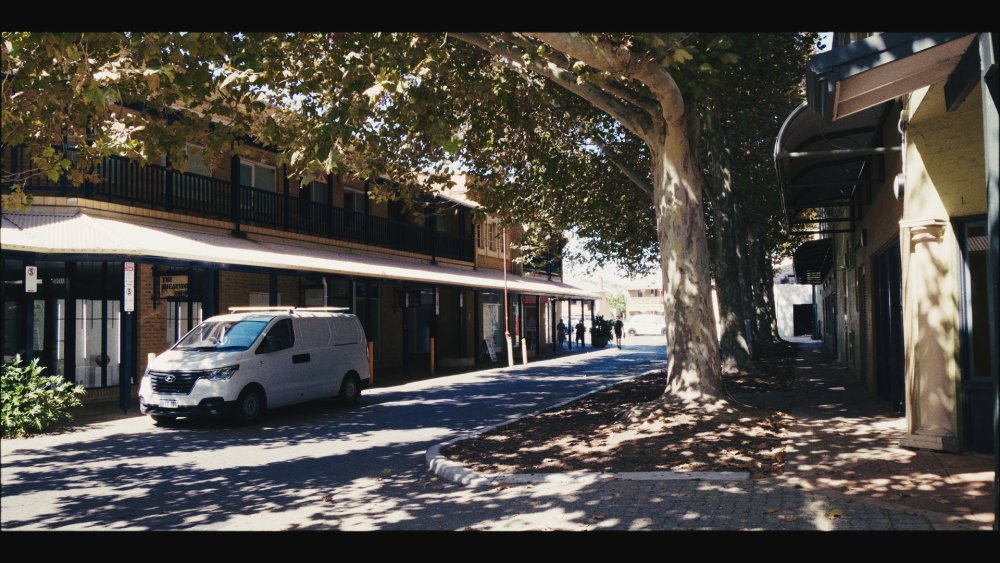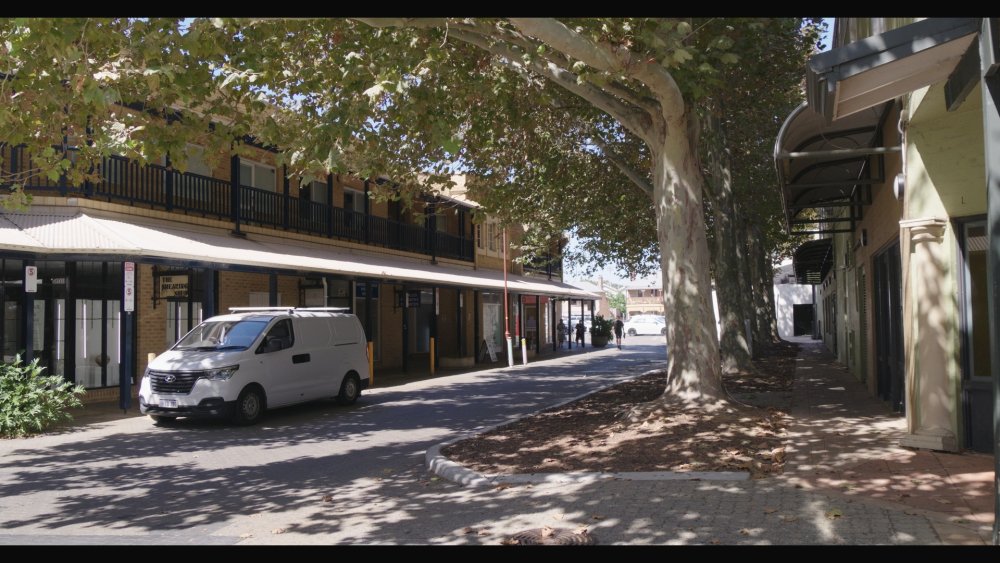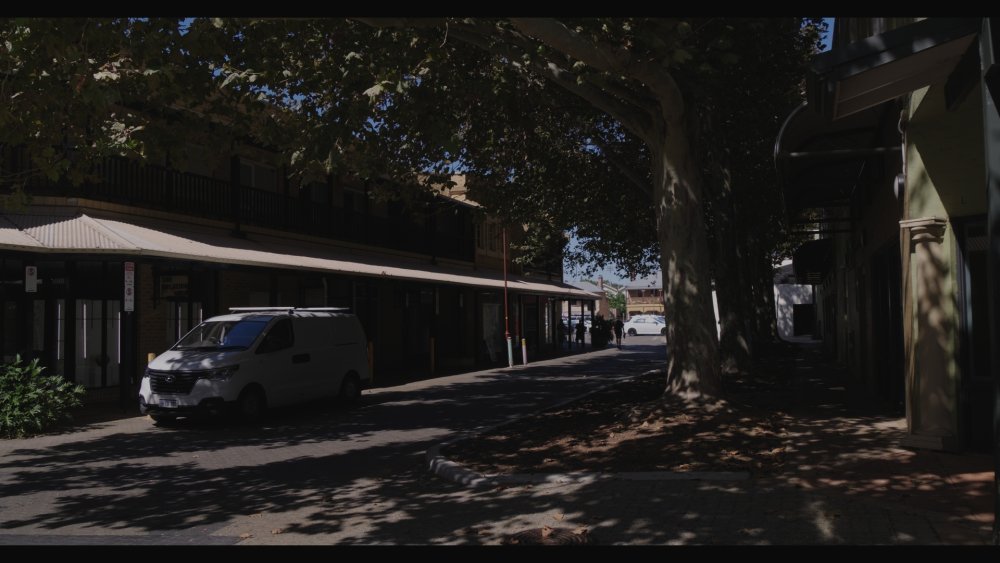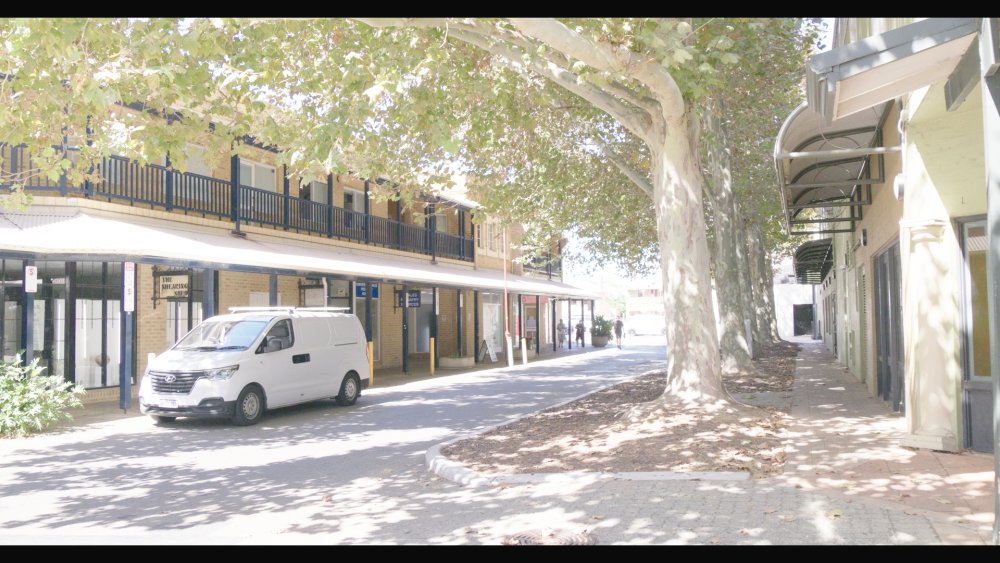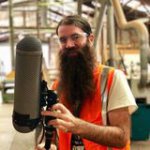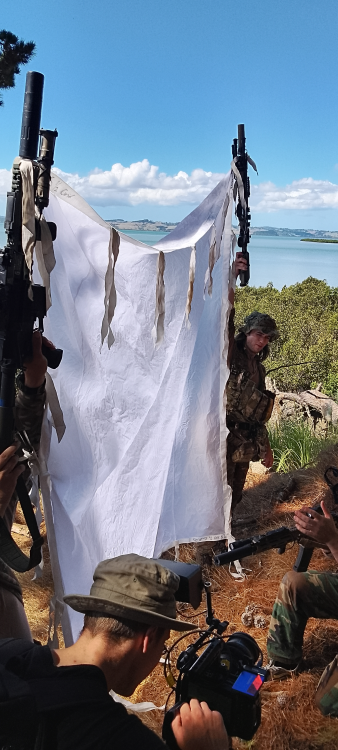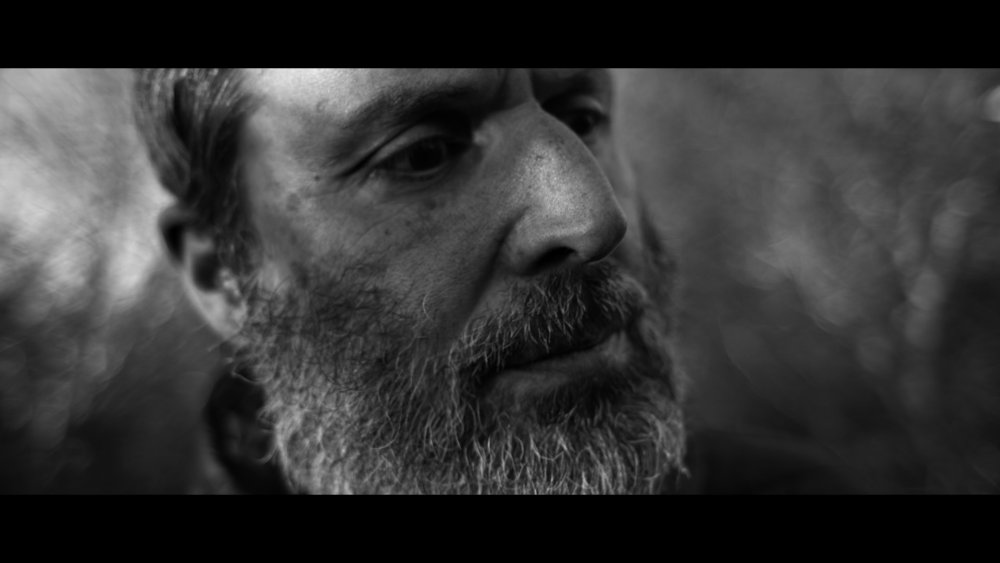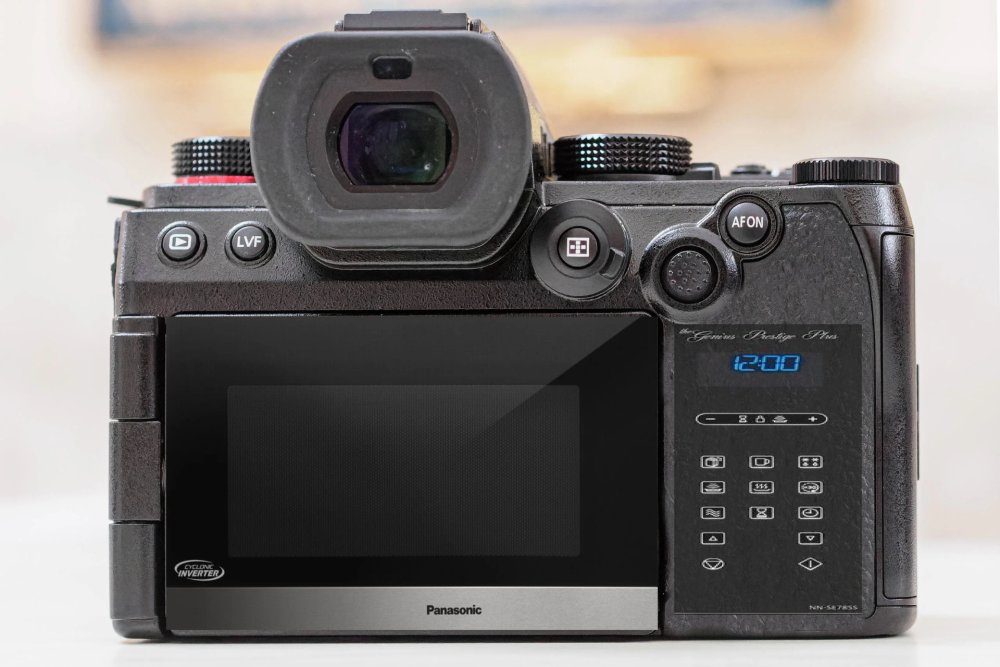Leaderboard
Popular Content
Showing content with the highest reputation since 02/28/2025 in all areas
-
I have a new setup and pipeline and I'm really happy with it. GH7 shooting V-Log in C4K Prores 422 internally, at around 500Mbps 14-140mm F3.5-5.6 lens for daytime, 12-35mm F2.8 for night-time K&F True Colour 1-5 stop vND Pipeline in Resolve: CST to DWG as working colour space Plugin for basic shot adjustments Film Look Creator for overall look (and for taking the digititis out of the image) ARRI709 LUT to get to 709 output I went on a walk on Monday to test the full setup, and it was a crazy hot day (37C/99F) and direct midday sun, so seriously challenging conditions. Here are a few grabs (be sure to click-through rather than viewing the preview files embedded in the post). My notes and impressions - while shooting: Setup was GH7, 14-140mm lens, vND, and a wrist-strap and that's it I used the integrated screen, showing histogram, zebras, and focus-peaking to monitor I used back-button focus to AF before hitting record, so no AF-C going on while shooting (and randomly changing its mind about what to focus on) All shots were 14-140mm at F5.6 for constant exposure The K&F 1-5 stop vND had enough range, when combined with the DR of the GH7, so I never needed to change settings, despite going in and out of shadow (and even inside, which isn't included in the above images) The vND had a much more consistent sky and colour render than my old (crappy) vND, so I'm really happy with it I did ETTR and bring images down in post, but my tests indicated that V-LOG is very linear so there are a good few stops of latitude there The "tripod mode" of IBIS, which locks the frame completely, was very effective (despite me being hot and not having eaten for hours) and I could hand-hold past 70mm without it needing to drift, and even at 140mm (280mm FF equivalent) the shots will be fine with a bit of stabilisation in post (C4K on 1080p timeline) I shot about 18mins of footage in about 1.5 hours, camera was on most of the time with screen at full brightness, and didn't get any notifications about the battery, and didn't look to see how much was left since I have a spare My notes and impressions - in post: I chose a Film Look Creator preset and then just messed with it for maybe 10 mins, while scrolling back and forth through the footage, and I deliberately pushed the contrast to create a really strong sense of the contrast between the beating sun and the deep shadows Shots had exposure adjusted (obviously, due to ETTR) and some had contrast lowered and a few had slight WB tweaks, but that's it I never felt like I was fighting with the footage, and it didn't feel like work when creating the look.. I've shot with a lot of cheap cameras with tiny sensors and you always feel like you're trying to make gold out of lead, but playing in the FLC was more like choosing between a large range of high-quality options I used another copy of the FLC to adjust exposure etc per shot, with it set to not impart and 'look'. The advantage of that is that in Resolve there is a mode (Shift-F) that maximises the preview image and gets rid of the GUI except for the vertical toolbar on the right-hand-side where the DCTL and OFX plugins are, so it's a way of getting almost a full-screen view but keeping the controls visible.. very useful if you don't have a control surface or a second monitor handy. I'll talk more about my thought process and how I got to this setup in a later post, and also go into some of the technical stuff (DR, high-ISO, etc) but more importantly than that, I finally feel like the tech has come of age. What I mean by that is that I now have a setup where: I can shoot with a conveniently sized setup that doesn't need a rig and is ergonomic to use It has the right usability features, such as histograms, zebras, focus-peaking etc internally The monitor is bright enough The GH7 plus lenses (14-140mm F3.5-5.6 and 12-35mm F2.8) are long enough and fast enough to shoot what I see, without being too large, heavy, or prohibitively expensive It has enough spec that it can deal with almost all the situations that I actually shoot in, with enough DR for the sun, enough ISO for night-time, and fans so it doesn't overheat before I do, etc It shoots internally using a colour space and codec that don't look cheap/amateurish and make me think about upgrading It doesn't fight with me in the colour grade Resolve and the Film Look Creator are able to easily give me the flexibility in post to match images and correct any weaknesses from shooting (e.g. if there's a bit of movement when shooting hand-held at 140mm) Resolve and the Film Look Creator are able to remove the 'digital/video' look and instead give me a range of options that don't look artificial and most importantly, contribute a feeling to the footage without distracting from the content of the images (this is, after all, the entire purpose of what we're doing here.....) For the first time it feels like I'm getting the results I want because of the equipment I have, rather than in spite of it.14 points
-
Where did Mattias Burling go? Youtube channel is gone.
Emanuel and 10 others reacted to Mattias Burling for a topic
Hello, I hope everyone is well! Even though I’m not really active on camera forums anymore, I frequently read the EOSHD blog and every now and then the forum, so I saw the thread and thought I would respond. Because it wasn’t ”poof gone”, it was announced on the channel over a year ago and mentioned in the last three videos. Before going into why, super flattered that this thread exist. I mean that. So here are some thoughts on the matter and why I took it down. Hobby vs Work YouTube was never my job, just a hobby. So was video making and photography, in the beginning. When starting the channel I was working as a producer after a couple of years as a radio/TV reporter. So I started the channel to keep my practical skills fresh. And to keep up with the development, which was huge at the time. The DSLR revolution, Blackmagic, cheaper editors etc. Fast forward a couple of years and I started making more videos at work again. At the same time I pretty much lost all interest in doing it as a hobby. And actually canceled the channel. Winston Churchill was definitely right in saying that work and hobbies should not be too similar. But what I had discovered was a passion for still photography, which I had pretty much no experience with. So I started making videos again. That’s why my videos became very repetitive and short. I didn’t care about that part, I just wanted to display my stills work and get feedback, talk to the community, experiment with cameras and develop. After a few years I became a good enough photographer that my new employer noticed and just like that I was shooting stills professionally all the time. And I still do (I work in marketing and PR). It’s a huge bonus in my field and if you are good at it you will never be out of work. So photography also became less and less of a hobby. Instead I found other hobbies. They where things that for example got me out into nature, so photography tagged a long a while, as a secondary activity. But eventually it faded. It was also nice to do things and not share it with people. I know I probably could have a very successful channel by making videos about my current hobbies, and even make some money. But I never really wanted a channel for the sake of a channel. And always had a full time job. The fact is that at no point would I had been able to live of my channel, not even at the peak. Even with sponsors it was never more that a regular salary (in my field and country). But as long as it was a hobby and I was glad to do it, it was a welcome addition to finance camera gear. Time At the same time as my channel started to feel less fun and other hobbies started taking my time, I started a family. So.. you get the idea: full time job + family + 2-3 hobbies = no YouTube. Upkeep So why take it down, why not leave it for the community? I did.. at first. Like some of you pointed out, the YouTube crowd in the photography/video space is generally nice and positive. That is my experience as well. Early on I learned that a good way of keeping the trolls away was to be present. Respond and engage. Trolls are usually idiots or cowards, so they don’t like getting push back. But once I stopped making videos, views and comments obviously went down. But the trolls started coming back. Not so much after me, and I don’t care about that. But agains the community. The people commenting started being nasty towards each other. I felt a responsibility to moderate, which was annoying. That’s when the thought about simply removing it started to grow. It wasn’t an impuls. It was an internal debate that went on for months. And the issue grew much much larger than a couple of trolls. I started thinking about five years ahead, 10 years, 30 years.. This post is already way too long so I won’t go into all of it. But I think you get the idea when I say: Privacy or when the content no longer reflects the creator. Digital minimalism, control over one’s narrative, inactive or outdated content. Risk of misuse of content due to me not checking the terms updates. Closure. So there is a looong ramble :) To keep in spirit of the forum I can charge my current gear for pro work :) For the longest time I used the EOS-R for 75% of all my work and the R5 (rental) for the rest. It wasn’t mine but my employer told me to buy whatever I wanted. Paired it with a 28, 35 and 70-200. 70/30 stills/video. The R5 is peak camera imo. Today is a little different. I started working for a new company about a year ago and again was told to buy what I needed. I would have bought the R5 without hesitation if it wasn’t for the Sigma 35-150/2-2.8.. I just had to have it. So I ordered the Nikon Z6iii. It’s not as good overall as the R5 for me and what I like in a tool camera. But it’s 90% there. And coupled with that lens it’s becomes on par. //MB11 points -
I'm not really seeing any difference between any of them; S5, S1H, S5ii. Yes there are some very subtle differences such as that from the S1H is a teeny weeny bit softer due to the OLPF, but otherwise, nothing for me. There's some chatter about over-sharpening. I don't see it. There's some chatter about moire. I'm not seeing that either. Highlight roll off and blah di blah, - what are we shooting here with these things? Are we really comparing the results from our humble mirrorless cameras with Hollywood lighting, productions, lenses and budgets? I'm not, - to be even remotely in the ball park is hilariously ridiculous. Here's a screen grab from my S9 which is my principal run & gun unit, from last weekends wedding I am currently editing. A pretty dark hole of a room for bride prep and unless anywhere near that window, then screwed. It's SOOC and not touched it in any way; exposure, WB...nuffink. 6k 30p shot at 1/50th, 4000 iso, 5000 WB, Freewell ND 2-5, exposure otherwise eyeballed on the rear LCD with the wave form I rarely look at.9 points
-
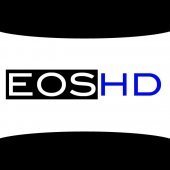
Panasonic G9 Mark II. I was wrong
gethin and 7 others reacted to Andrew - EOSHD for a topic
It turns out I am a bit wrong. ... That Micro Four Thirds was dead. Well near me, the G9 II came down to a much more sensible 1299 so I thought I'd give it a try. This thing... oh my gawd. Feel like putting the rest of my gear in the bin! This little box of joy is pure art in the handheld 4K/120p mode (and also in 5K open gate). The colour science, slow mo and IBIS are so, so good. The new GH7 sensor is quite something. Beautiful filmic quality to it. And I thought IBIS was good on the full frame Panasonic cameras or Olympus OM-1 but this is taking the biscuit now. You can just stand there and get a completely static frame especially in 120fps. I keep putting shutter at 1 second for long expose stills, pin sharp...The first camera that can really lay claim to being a tripod killer, in my view. Then there's the image processing... It totally defies the price. The new sensor just looks so clean in low light and dynamic range is fantastic. The real-time LUTs look stunning here. No other Micro Four Thirds camera has nearly as good colour processing (except the more expensive GH7), so in this sense I prefer it even to the Olympus OM-1 with the lovely Olympus skin tones. In some ways it is better than a flagship $4k full frame cam... I am not joking. Not missing a full frame sensor that much to be honest. It has the dynamic range, the low light, the resolution, and with a fast enough lens... the full frame look as well. The Metabones Speed Booster 0.64x fits without scraping the sensor-box. Also, the EVF is enormous and totally defies the price. Criticisms? Autofocus is very lens dependant - it's still a bit rubbish with the older stuff and adapters. Also no ProRes LT like the X-H2... With two SD card slots, it limits you only to 1080p in ProRes mode which is a bit silly... but the high-res stuff is available if you plug in an SSD via USB. GH7 has an advantage there for sure. But in plain old 10bit H.265 the image is superb. I think this body design suits the smaller lenses too... You know I'm not the greatest fan of the S5 II body design, well it is growing on me here... Micro Four Thirds and small stuff seems to go well with the G9 II / S5 II body design. It starts to make more sense. The sharp angles cut in less, camera as a whole is lighter, the grip is sufficient for everything and it's got that "GH2 feel" when you put the tiny 20mm F1.7 pancake on there whereas the S5 II with the larger lenses doesn't have that same charm to it. I am inclined to say Micro Four Thirds LOOK is back too... It's an antidote to predominance of a super shallow depth of field in commercial work and Netflix. It really makes me want to fully commit again to the system as it just does SO MUCH, far more than any full frame camera remotely affordable. It does more than a Sony a1 II FFS!8 points -

New travel film-making setup and pipeline - I feel like the tech has finally come of age
MurtlandPhoto and 7 others reacted to kye for a topic
Tianluokeng Tulou clusters, Fujian Province, China. These buildings have a very thick outer wall of earth and a 3-5 storey inner wooden structure that houses dozens of families. The structure is designed to be stable during earthquakes and secure against bandits. The oldest if the ones we visited was built in 1796. These are just with a quick grade, mostly Resolve Film Look Creator. The DR in the scene is extreme, and while all the required info is in the files, I'm going to have to go heavy on the power-windows when I grade these properly. Grabs from GH7 + 14-140mm zoom. Grabs from iPhone 17 Pro shooting Prores Log with default app. The Prores HQ Apple Log files grade really nicely, have heaps of DR, and are great to work with. The DR isn't quite as much as the GH7, but it's more than enough for these scenes. These were graded at a different time to the above GH7 shots so probably don't match. All-in-all, the iPhone well and truly punches above its weight when you take into account it's pocketability, the size of the sensor, and the incredible range in focal lengths. Imagine how much you'd have to pay to get a lens that can do 13-200mm FF equivalent FOV and has exposure levels between F1.78 and F2.8 across the whole range.8 points -
Surprisingly good and afordable external HDMI EVF
John Matthews and 6 others reacted to stephen for a topic
Recently saw a second hand Sony ZV-E1 on a local online market place. Price was good and I bought it. Great video camera but lacks EVF. Same is true for it's pro oriented brother FX3. Typically those type of cameras are used with external monitor on professional shoots or with camera LCD display only when vlogging. If you like EVFs and want to add one, choice is not great. No external add-on EVF from Sony like the one Sigma FP has. Portkeys LEYE III modified with better loupe is the cheapest one at 450-500 E/$ but I wouldn't call it small. Then Kinefinity EVF for 1250 E/$. Great one but definitely not affordable. There is an obvious gap and need for a relatively small, high quality, affordable external EVFs for cinema / hybrid cameras. I was looking for quite some time on AliExpress for Mini OLED displays (0.39'' to 0.7'') as a building blocks for DIY External EVF. Usually they come with controller board with HDMI input too. Almost bought some components preparing to do some 3D design and printing around them. Surprisingly found an EVF ready to be used. This type of EVFs were designed to be used with industrial instruments and were on AliExpress for quite some time. They all had lower resolution and AV video inputs in the past. For the first time saw one with 1920x1080 resolution on a 0.7'' mini OLED display and HDMI input. Also for the first time this type of EVFs is targeted toward cameras. Price was good too at 230E/$ so I decided to give it a try. Received the EVF few days ago and am happy to report that it is better than expected. Here is the list of things that I like and few that I don't like: What I Like: High resolution 1920x1080 ( equivalent to 6 220 800 dot camera EVF). Cameras EVFs have 4:3 ratio to cover 3:2 frame + some black strips on top and bottom to display information like exposure and other camera settings. The sensor on this one has 16:9 aspect ratio. To get 3:2 ratio the EVF crops the image to 1620x1080. Still great resolution at the level of ~5 mln dots EVFs like the one in Panasonic S1 series. I see in the EVF exactly what I see on the LCD screen of Sony ZV-E1 minus peaking. This is a rather good thing. Solid, all metal outer shell, good, even great quality of craftsmanship. Eye cup is big, made from rubber and fits around the eye much better than traditional camera EVFs. Big and bright screen - has at least 10 levels of brightness that can be changed and controlled manually. Picture inside looks big and bright, quite easy to see. Smooth focusing / diopter correction ring. HDMI cable is integrated, ready to be plugged into a camera. HDMI cable looks to have good quality. No need of additional power or battery. It gets small amount of power (500mA) from HDMI. This is a huge plus for me. Has mounting thread, can easily be mounted on rigs or cages or even on camera hot shoe. Can be tilted and placed in any position you want. Another huge plus. I've simply put it on monitor holder for hot shoe, which is mounted on the camera cage. EVF sits higher and is slightly tilted. It also provides 3rd point of contact and add stability. I am able to hold the camera lower and closer to the chest, which makes it more stable when shooting. Optimal size for me ! Not too small and not too big. Relatively light. Another huge plus. Optics made of glass, look high quality. Great price for what it offers - 200 Euro ($) including shipping and taxes after some Aliexpress discount. Because EVF receives its power from HDMI you don't have to switch it on separately. It has its own ON/OFF switch but if you stop the camera, EVF stops too as it doesn't receive power from HDMI. This is very convenient because it semi integrates with the camera, you don't have to switch it on/off separately. What could be better: While loupe (optics) craftsmanship is high quality, optical schema is probably not the best. Seeing tower end of the frame and in the corners is kind of difficult. In photo mode EVF has to show picture with 3:2 ratio. It crops the display at 1620x1080 to achieve this ratio. Same is true for video. This is great because this way corners of the OLED display are always cropped and dark while picture in the EVF is still high quality and resolution is still great too. So you always look at a picture which is in focus from end to end and you can see the whole of it. Brightness control has many steps but goes only in one direction. Adjusting it when you want to make picture darker or go at the opposite direction is difficult. You have to cycle trough all settings value until arriving before the setting you were a moment ago. Brightness control button is too small and uncomfortable to use. Both are not huge issues because eye cup completely isolates your eye and cuts external light at almost 100%. Once you set the brightness level you rarely need to adjust it. It doesn't have the additional tools a pro external viewfinder usually has - like peaking, False color, zebras, etc. Because it takes power from camera and becomes additional consumer, battery is drained a little faster. Hard to say how much faster. I still prefer this compared to EVF that have their own battery. Picture is not as clear as in a high quality camera viewfinder. Native camera EVF receives video stream that already has noise reduced. Image on HDMI out from the camera is more like RAW video, lots of noise in the shadows at high ISO, some noise even at lower ISO. I guess the same would be with any external EVF, even expensive PRO ones. It's not EVF's fault. I also see sometimes some texture like noise, not sure because of this particular OLED display or because of the HDMI out stream. Overall picture quality is not up to what you see in a camera integrated EVF but it is close. Surprisingly noise in the shadows helps me better judge exposure and use successfully ETTR. I live in a PAL region but camera was set to NTSC to have 24fps. There was a lot of flicker in EVF image even when only natural (sun) light was available. Maybe this can be avoided with some additional camera settings. No such problem when camera is set to PAL and 25fps. Sometimes when adjusting brightness, EVF looses sync and doesn't display any image. Have to switch camera on/off one time and problem is resolved. Not a big deal but it happened once or twice. HDMI cable is integrated. A PRO EVF has just HDMI out socket and you can choose your own HDMI cable. This one can be easily modified IMHO. Size: L=~50mm; Diameter ~43mm; weight 188g with the integrated HDMI cable Overall I like it a lot. There is nothing like it on the market and especially at this price point. I am surprised it took Chinese manufactures so long to figure out that a good market for external EVFs exists. I prefer it over modified Portkey LEYE III because of the smaller size and no need to plug and charge another battery. I may buy another one. 🙂 Now my Sony ZV-E1 has an EVF and a great one too. 🙂 Here is the link: On Aliexpress You can find it on ebay too. Search for V780H EVF Here how it sits on top of Sony ZV-E17 points -
Went hot-air ballooning and if there was ever a challenge for shooting, this was it. Extreme low-light and extreme DR from hugely bright light-sources. They say you can't take bags in the balloon, and it had been really wet weather, so I decided to go small. I took the GX85, TTartisans 17mm F1.4 for the low-light, Laowa 7.5mm F2 for an ultra-wide, and the 12-35mm F2.8. I was a bit cheeky and took a sling bag and kept it under my jacket. The requirement is that nothing is loose in the basket and that you can hold on with both hands for landing, so I figured my bag under my jacket was basically the same as having a big pocket. It's a crazy early start. We arrived in the field before first-light and they started setting up in pitch darkness guided only by torches. I started shooting at F1.7 and needed ISO6400 at first to get any kind of level on anything except their torches. I shot on the 17mm at F1.7 and gradually reduce the ISO until the balloon was mostly inflated, then swapped to the 7.5mm for a few wide shots, and then swapped to the 12-35mm F2.8 and it was time to get in the balloon and off we went. I also shot with my iPhone 12 mini for some quick shots using the ultra-wide when I didn't want to change lenses, and also as we were approaching landing, as I had put the camera away in anticipation. It was super-foggy and the pilot ended up having to land early and for a while we were going pretty close to the treetops so I'd put my camera away when he told us that he'd be landing at the next opportunity. Frame grabs.. mix of GX85 and iPhone, put through a quite moderate FLC pipeline. In retrospect I took the complete wrong equipment and used it in the wrong way (so, it's business as usual!) but the FLC pipeline really took the footage to the next level, and I used just enough strength on the film emulation to get rid of the digital look to the images. Here's a comparison. Grade (same as above): SOOC: The GX85 has super-whites so despite being SOOC that image is actually slightly clipped in-post and some highlights can be recovered, which the FLC grade has done, but you get the idea. The SOOC is with the GX85 default profile and has much more of a video look to it, despite being pretty good compared to other similar cameras. If I was to take the same equipment again, I'd lean into the darkness and just use the 17mm at F2.0 where it cleans up and use the GX85 at something sensible like ISO1600. This would have the early shots as perhaps being unusable, but it would mean that the torches the crew used wouldn't have been clipped (I clipped them in favour of exposing what they were shining on). We're going to go again later this year, and for that I plan to take the GH7, 9mm F1.7 and 14-140mm F3.5-5.6. This will be a much larger setup but if I use a neck strap then I only have to have one lens in a pocket and so I won't need a bag at all. I just bought the 9mm F1.7 and it's sharp wide-open, so apart from having AF, it is both an ultra-wide as well as a low-light lens. I can crop in-camera and/or in-post to get a tighter FOV, but you don't normally need long focal-lengths when it's that dark. The more I use this FLC pipeline the more I like it. If I'd have shown these images to my 2018 self, I wouldn't have believed me when I said that it was me that made them.7 points
-
Funnily enough, a former client from 2014 contacted me today to say that she had 'lost' her wedding video and did I still have it? After I stopped laughing, I thought hang on, it is probably still on Vimeo. And it was. I thought it would look so dated and be an utter cringe-fest, but actually it wasn't and I was a bit surprised. It was shot on the GH3.7 points
-

Fav AI outcome out there...
Video Hummus and 6 others reacted to BTM_Pix for a topic
My favourite AI outcome would be for it to fuck right off.7 points -
Panasonic Lumix S1R Mark II coming soon
MurtlandPhoto and 6 others reacted to newfoundmass for a topic
I very much prefer the image of the OG S5 over the S5II X, but people really make a mountain out of a molehill when it comes to the "worse" image. It's really not that bad. In the year I've had it not one client or viewer has complained about the image; in fact it has been the exact opposite! I feel like cameras have plateaued so now people over analyze and overstate every little thing. But virtually all of this stuff doesn't matter to the audience that we are creating these images for. Anyone with any discernible talent will be able to take the S1RII and create compelling images with it. That bride is going to love the pictures you take, the corporate client is going to be ecstatic with the talking head interviews you shoot, the MMA school is going to be psyched with the promotional video you film, etc. As long as it's in focus, the colors are okay, and it's framed well, these folks aren't going to really care if it's a little noisier than the R5II or if the rolling shutter is slightly worse than the A7RV. I don't know how it is where you all live, but there are literally people making money using cheap Canon Rebel DSLRs and kit lenses in my area. I see friends post their wedding pictures, their kid's senior portraits, baby pictures, and all of that stuff on Facebook all of the time. Most of the time these photographers aren't even good at what they do, put people I know still go crazy over them and post these photos they paid for proudly on social media! These photographers still get paid work, not just because they are cheap (that certainly helps!) but because the average person's standards aren't all that high. That's not to say that we should lower our standards, just that we should remember the big picture (no pun intended) and stop worrying about the small things that aren't going to matter to 99.9% of our clients/audience.7 points -
As many of you will have guessed, I’m not a rich teenage kawaii girl so take my opinion on this camera with a grain of matcha. What I am though is a member the unspoken demographic for it which is the jaded old photographer with a bad back. So I’m not her, I’m not you and you aren’t either of us so I’m predicting your mileage will vary wildly. Which is a good thing. I enjoy it for what it is, a genuinely pocketable holiday camera that makes me take silly snaps with far more frequency than I would do with a “real” camera because I’ve long since understood that holiday doesn’t mean assignment. Anyway, some silly soft, noisy snaps I took with it. Could I have taken these with my phone and at likely better quality ? Of course but the question is would I? No, because getting my phone out of my pocket and wrestling with it like a wet fish when I see something interesting is not my idea of using a camera.6 points
-

Panasonic G9 Mark II. I was wrong
Video Hummus and 5 others reacted to kye for a topic
6 points -

Panasonic Lumix S1R Mark II coming soon
newfoundmass and 5 others reacted to MrSMW for a topic
Mid season report. Actually, I am nearing end of season with just 2 more jobs to go this year until June next…which is quite normal for me. The TDLR is I almost love it… Why ‘almost’? I’ll get to that… The Good = The body design actually. Yes I would rather Lumix had moved to a body style more like the FX3, but I guess they thought that might scare photographers who expect a hump. Whatever the reason, it’s not as innovative as it could have been and despite not having a top screen, really is like a smaller S1H in the hand and IMO, that is a good thing. In my hands, with no battery grip or any other adornment other than the smallest Senheisser mic, it feels just right in terms of size, weight, build, comfort, ergos. It’s a true hybrid. It would be even better with an internal electronic VND, but hey ho, maybe that will come with the S1H2? With 5x C1-5 custom settings and a simple photo-video switch, it’s fabulous for hybrid work. I don’t even use all 5 photo and 5 video settings, but have it set up basically as: landscape photo, portrait/candid outdoor, portrait/candid indoor and low-light, all with a starting f stop, aperture, WB, ISO and equivalent matching settings for video so it’s actually only one flick of a switch to flip between video and stills in any given scenario. Brilliant. The sensor. 44mp. Perfect 👌 for me sweet spot between the more traditional 24mp and the 100mp of the bigger MF sensors. Suits both photo and video. Video files and capability. I shoot 7.2k 30p open gate and the file sizes are not huge or slow to work with. With baked in conversion LUT, SOOC I love them. Yes raw would be even better, but an almighty faff and overkill for my needs. The open gate allows any number of crops, 30p a 20% reduction in speed on a timeline and the 7.2k quite a bit of scope for punching in etc. Having said that, not fully edited a finished production yet but I have checked and edited a few bits here and there and it’s even better than the 6K I was using before which itself was better than the 4K from Lumix FF cameras so thumbs up. The Not So Good = Battery life is pretty poor. I’ve always scoffed at people reporting poor battery life and never experienced it on any camera. Until now. It’s not great, but a spare battery in my pocket at all times is how I now roll and is what it is. AF accuracy for video is good but not Sony level. Ditto for photo. Having come directly from an A7RV, I’d give the nod to the Sony for ultimate outright stills quality and AF, but the S1RII gets the nod for video and body. I don’t think there is anything else other than I have a pair of them matched with the 35mm f1.8 on one and the 85mm f1.8 on the other. The S9 is on lighter duties of video only, mostly longer than clips and sometimes even full length ceremonies and speeches and has only overheated once and that was on a very hot day in direct sunlight. The S1RII by the way, I have never even had a warning and has never got hot to touch, - just the usual warmth you might expect shooting a thing all day long. I may replace the S9 next year with an S1IIE for a bit more robustness and utility, but waiting to see if any S1H2 appears before doing that, if I do that. Almost certainly will trade the Sigma 28-70mm f2.8 for the new Lumix 24-60mm f2.8 next year as I think it will suit my needs better and appears to offer better AF and detail/rendering. S5II soldiers on in its static role and just does what I need it to do. I do need to find a way to get rid of the battery grip and the heavy tripod however and working on that… So ‘almost’ love it. It’s the battery life and good but not stellar AF plus the less than exciting body design that drops it 2 points for me so I’ll give it an 8/10. Along with the Z8, probably the best all round hybrid camera available today? At least for my needs. Taking into account lens options and prices.6 points -
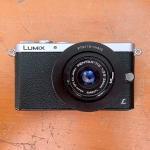
Fuuuuuuuuuuck A.I.
92F and 5 others reacted to fuzzynormal for a topic
That is all. Thanks for coming to my TED talk.6 points -
Official review, mentioned in another thread, it’s fucking awesome. I didn’t expect to like it as much as I do, but actually… So the OG S5 I really liked and I switched from Fuji for video and stills because I wanted a full frame system over a cropped one. For a while, I actually carried on shooting a ‘cropped system’ for video because the 4k 50p in the S5/S1H/S5ii is of course cropped, so it was more for the stills I wanted full frame. My overall feeling at the time was it was a marginal step up, but nothing anyone else would really notice. Bought a pair of S1R’s and whilst the image quality could not be questioned, did not care for the body too much and it was just a bit old school DSLR and too different from the S5 and S1H. Bought an S1H for video. Stellar camera. Would still be using it today if it just had a couple of features the S5ii has. But it doesn’t so had to eventually go. S5ii’s became my video workhorses and can’t really fault them but hated them for stills, especially coming from S1R and S1H which were MUCH better IMO as photo cameras. S9. Bought it. Sold it. Bought it back again. Love it, - my favourite run & gun video camera ever. Yes I have a few niggles with it such as it’s too easy to knock the dials etc and when I thought I was shooting 1/100th notice I am shooting 1/80th or 1/160th from time to time and aaaargh. I need to look at maybe even just a small bit of tape or something to prevent that. S1Rii vs Sony A7RV and Nikon Zf, because it has replaced both of those cameras. Vs the A7RV I’d say it’s about equal. Near identical sized and handling bodies, build, rear LCD’s etc with zero real world image quality difference. The Sony is a touch better in the AF department but not by much. Vs the Zf, the Zf is more ‘fun’ and my favourites point & shoot camera ever and again, very little real world image quality or AF difference, but the Lumix is a better lens platform and as a single body over a pair, it’s very very good. Pros: Size, weight, handling, build, image quality, hybrid crop zoom. Cons: I honestly haven’t really got any. I was hoping originally for the sensor from the Leica SL3 and a mini S1H body and whilst we did not get the former, I’m over that and re. the latter, it actually has that vibe. I had a few minor niggles first job I shot it, but then realised I had missed a few things on the set up so tweaked those areas for the job I am currently working on. What’s missing and any other comments? Well as above, hated the 28-200 zoom and it’s going back. I prefer primes but recognise they are not always practical for what I do or shorter zooms, preferably with internal zooming (or at least very short extension) are my preference. And do not care for slow, variable aperture lenses. So it’s going back and getting the lens that I know will work for me and that is the Sigma 28-45mm f1.8. What is missing for me now is just one more lens, a same size but longer focal length to the above lens, ie, something like a 45-90 f1.8 internal zoom. Please Sigma, make this lens 🙏 But for now, I will have to make do with hybrid zoom which is a bit of a revelation to me. It’s a massive thumbs up from me and now having 1 less camera, 3 less lenses and everything in one system, just a much better way of working.6 points
-

Zeiss ZX1 full frame Android prototype, let's repair
Juank and 5 others reacted to Andrew - EOSHD for a topic
According to a book, Dutch company ASML got into a big fight with Nikon a few years back. They both make lithography tools for semiconductors industry. ASML's optics supplier is Zeiss. To pressure Nikon into a settlement, they had to take the patent fight to them in cameras. So ASML got Zeiss to make them a camera. It also doubled as a marketing adventure, shown off in stores but rarely really ever in stock. Until one day this popped up on my radar, with the serial number XXX XXX. The AF wasn't working, or the manual focus (fly by wire), lens stuck at macro 30cm. So I cracked it open, mopping sweat off forehead. Inside is 256GB SSD, final release model was bumped to 512GB. Android 6, with Zeiss test suite of apps onboard including FCC certification test suite 🙂 A music player. A Dutch full frame 36 megapixel sensor with some analogue colour. A Zeiss 35mm F2 lens (but different optics to the Sony RX1), 4K video (Super 35mm crop) and an EVF. And some weird prototype issues. I'll make a YouTube video on it. Sample shot And I still have no idea how I fixed the AF. Just wiggled the lens and sensor ribbon cables a bit and it started working properly, but there was no sign of either cable being loose in the first place! It is quite a fun tool, and a bit different. Android is decently snappy on it, the camera app is well designed, the physical dials are lovely but it doesn't have a joystick or command dials... So a lot is on the touch screen, but it's well done. Shall I root it? Update to 3.0 production firmware? (Risks bricking it). Given the rarity factor... I probably won't!!6 points -

Sony FX2
Juank and 5 others reacted to Andrew - EOSHD for a topic
Fro Knows Photo - NEW SONY FX1 MADE ME SHIT MYSELF Gerald Undone - SONY FX1 is a bedwetting moment Philip Bloom - FX1 CURED MY LOVE OF CATS Jordan Drake - I JIZZED MY PANTS BECAUSE OF SONY Camera Conspiracies - SONY FX1 ABSOLUTELY CRAP VLOGGING CAMERA Camera Labs - SONY FX1 has been released and it shoots video Tony and Chelsea Northrup -6 points -
New L-Mount Lumix (cinema?) Camera
Emanuel and 5 others reacted to eatstoomuchjam for a topic
6 points -
First day out shooting in Seoul. Here are some images. These are all frame-grabs, were ETTR, had a look put over them with Resolve FLC plugin, and I adjusted exposure on each (and contrast on the odd one or two) and that's it. I'm sure I will finesse them once I start editing for real, but this is essentially just looking at my dailies. Setup is incredibly easy to use thanks to the huge DR, AF is super-snappy, the 14-140mm zoom gives so much flexibility and I'm finding I'm using the long end a lot more than I thought I would. I'll post some video footage of it later, but I'm also finding that I can hand-hold at 140mm (280mm FF equivalent) and with the OIS + IBIS working together get almost no movement in the frame at all, and with a slight crop in post I'd get locked-off images. At anything below 80mm or 100mm the frame is locked and won't need any stabilisation in post. Incredible results.6 points
-
6 points
-
6 points
-
I live on the Detroit River... still plenty of Prohibition-era smuggling relics in this area- secret canals and tunnels and such. Maybe I should get a little dinghy and start making midnight runs for barrels full of bodies and lenses 😄6 points
-
Great value in every country in the world except the US where it will cost 17,000 US dollars.6 points
-
6 points
-
After being in a pretty heavy accident on Saturday that has written my car off, my new favourite art camera is the Ring Doorbell camera. My car was hit at a 90 degree angle from the side by some clown who sped out of their driveway and across an empty bus lane flipping my car round and causing the rear tyre to blow. The art that the Ring Doorbell camera produced was in two parts. The first being a beautiful record of my hitherto unknown stunt car driving prowess to correct the induced swerving to avoid the trees on the pavement side and then the oncoming traffic in the other lane and bring the wreck to a controlled stop. The second and best bit was when the homeowner of the Ring Doorbell came outside and showed the footage to myself and the other driver who had thus far ludicrously been somehow claiming it was my fault. Upon which the other driver, faced with the reality did their own rendition of the Larry David fake fainting. As the Ring Doorbell was still active, it caught that too 🙂6 points
-

Forum ideas
octoplex and 5 others reacted to Andrew - EOSHD for a topic
So the forum is pretty good at the moment thanks to some spicy discussions, it would be boring if we all agreed all the time, but I also think we should encourage people to come back - big names from before like Mattias Burling , Dave Maze, they are missed. Maybe we could occasionally drop them a note to say so. I can't promote the forum myself, it just looks like I am spamming people with my blog. Maybe that's where you all come in 🙂 Would some of you be willing to post a few links here and there in popular Reddit groups, on DPReview and on social media groups? It would supercharge the place and get us noticed more... Then we'd have some great discussions with new people, and regain some control over the camera community in an independent way, rather than everything being hoovered up by the big US social media giants who are opening supporting a fascist regime at the moment. Never been a better moment to get our independence back from social media. Mark Zuckenberg and those like him are pure evil. The forum way is a better way. It offers everyone here a higher profile and higher involvement. The better our content, the better the discussions, the more people will come... I know a lot of forum posts have to reference other people's talking point or content, so a topic can devolve into lots and lots of URLs to social media, or YouTube video embeds. But rather than have rules around this, which I don't want to do, it would be great if we could encourage people to join who will use the forum a bit like having their own blog - Posting original hands-on opinions and content about cameras and shooting... Our own insight is better than constantly referring to that of others - It would be good for the community. Just some thoughts and open to more ideas too about how to grow this rather nice place that we've got.6 points -
I've lurked here for years but this S1RII stuff has gotten real silly. It's like there's resentment it's not an S1HII even though we all know it's the R series. And the criticisms of the S1RII are especially strange considering the Z8 (which I've owned) was subject to criticism when released (overheating, dynamic range, AF = nice try, but no Sony/Canon, no Bird Detect, not 1 but 2 recalls, did I mention overheating?). Now the Z8 is the model camera the S1RII just can't match. Almost as if firmware updates make a difference. Is Panasonic good at firmware updates? Gee, I dunno. The new Slashcam review certainly seems bullish on the S1RII.6 points
-
Panasonic Lumix S1R Mark II coming soon
IronFilm and 5 others reacted to MurtlandPhoto for a topic
I'm honestly a little shocked at the reception to the camera on some forums. It provides a fair bit of upgrades to both the S5ii and the S1R while still staying at a lower price point than the competition, and even it's own predecessor. It seems to me that every brand's offerings are more or less the same with little differences here and there while also offering their own distinct competitive advantages. I can't help but notice that many folks want Panasonic to do everything Sony or Canon does, PLUS their own thing. Or that these manufacturers have running checklists that they compare and contrast to each other line by line when developing a camera versus largely doing their own thing. I preordered the S1Rii so my bias is clear, but as someone heavily invested into the Lumix S system I can't see this as anything but a solid camera for their lineup.6 points -
Yep that's the kind of intermediary codec that the ZR needs. But only if Nikon doesn't cook it with that aggressive noise reduction. You know the drill, Fuji had similar issues I seem to remember you pointing out. Thing is, I don't buy cameras based on promised or wishful features anymore. Been burned too many times waiting for "coming soon" updates that arrive late, incomplete, or not at all. So as of right now, the ZR is off the table for me. It's not just the codec situation though tbh, the unreliable view assist/exposure tools and first gen quirks also give me cold feet. Good to know LT is officially on the roadmap, though.. great for early adopters but I think I'm done gambling on "maybe later".5 points
-
I initially dismissed the Nikon ZR. The compact body and odd I/O layout made it seem like a prosumer crossover rather than a serious tool. After spending real time shooting with it, that impression completely changed. The huge integrated display transforms the experience. It feels intuitive, immersive, and for the first time a Nikon mirrorless seems built for video operators. Pair with a Leica M lens and it delivers this uncanny mix of smartphone agility and FF cinematic depth, a combo that feels surprisingly liberating (think sigma FP but with IBIS). The body is metal and feels rock solid. The flip out screen isn’t ideal for low angle work, but that’s about the only ergonomic miss. The stills side remains capable and thoughtfully separated from the video mode. The redesigned video interface finally feels modern, with waveform, quick exposure tools, and four customizable banks all within reach. The main system menu still feels like a maze, but the dedicated video page is a major step toward a proper cine oriented workflow. I just hope Nikon will pull more from the RED side (traffic lights, open gate, 17:9 etc) in a firmware update. Despite its understated design, the ZR stands out as Nikon’s most forward-thinking hybrid yet. The 32-bit float audio, internal R3D recording, and that massive touch display all combine into a package that feels disruptive and modern at a mid-tier price point. Haven't been this tempted by a camera in a while.5 points
-
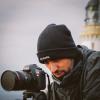
ProRes RAW finally coming to Resolve?
majoraxis and 4 others reacted to Davide Roveri for a topic
It's official! 🤯 https://x.com/Blackmagic_News/status/19656119914412526005 points -
5 points
-
Although it's not exactly what you're looking for, I'd have to second the Nikon Series E lenses. They truly are remarkable little lenses. I haven't been able to find a good copy of the 35mm 2.5 but the 36-72, 50mm and 100mm are nice little lenses, especially the size of the 100mm. Also the older non-ai lenses are pretty spectacular as well. One lens I hate to mention because it does get such bad reviews is the 35-70 3.3-4.5 ai-s lens. It's tiny and a lot better than the bad reviews give it. I mean, it isn't great, but there's something very Nikon in its not greatness. Another zoom lens I love, which I assume you're familiar with is the Canon FD 35-105mm 3.5. This lens is ALMOST parfocal. Obviously constant aperture. Internal zoom. Fairly compact. I've had a few copies over the years, then end up selling it because I didn't use it too often, regret it and seek another one. My most recent copy I put on the Sigma FP and here's a sample of it at 105mm wide open... No mind-blowing image by any means, but fairly sharp wide open and I like the way it handles the highlights. Of course it's a mess in direct light... as I found out last week during a shoot. However, there are rumors that Canon considered putting the L badge onto it because they were so happy with the lens. As far as primes, other than the Nikons, the Takumar lenses are a personal favorite of mine. I've heard people argue that the 28mm 3.5 is one of the best 28mm lenses they've used. I haven't used that one but the 35mm 3.5 is excellent. I've used a couple of the wide angle Tokina lenses from the late 70s, early 80s and they were decent, but I think they were f/2.8 lenses. Obviously you could get a cheap Neewer fixed ND to pop on the lens and leave there to give you that slower stop and to protect the front of the lens. Also check out the old Vivitar lenses, I have a set of mostly Tokina made ones in the m42 mount and I have always been very fond of them. The image instantly feels like an old 70s made for TV movie. I'm probably going to sell them though, not because I don't like them, I just have too much stuff and really need to scale back. I guess you could also look at some of the older Zeiss Jena lenses... even the MF ones would give you the slower apertures you were looking for wide open. Great thread! Wish there were more threads like this on here like it.5 points
-
Share our work
FHDcrew and 4 others reacted to KnightsFan for a topic
It's been a while since I've been able to work on any kind of movie, but here are some recent landscapes photos. I'm not doing anything artistic, just trying to capture some of my favorite places the way they felt at the time. The only edits are very slight changes to saturation and exposure. 90% of my photos are from 10+ mile hikes so I only bring my lightweight 28mm and a CPL, but in this group is a rare photo taken from the roadside using a 24-105.5 points -
I have the S1RII and the S1II. I also still have the old S1 and S5. The S1II is the same than the S5II about video details, even if some youtubers said the details rendering has improved, it's not true at all. Same bad rendering as the S5II. I understand some people are not bothered or can't see the difference and it's nothing wrong about that, but the difference is clear by example if you zoom inside your videos on people faces. Like the S5II, there is a sort of rough detail sharpening and in the same time a lack of very fine details. As always V-log looks better than the 709 profiles but it's still not great in my opinion. The S1RII also has the same detail rendering and I was very disappointed by the 6,4K Open Gate, it was not better than the 6K of the S5II, maybe even worse, like if this mode used a tiny bit of binning like the 5,9K 16:9. The new 7,2K is ok and looks better than the 6,4K. The 8,1K Open Gate is even better but limited to 24fps. Even if the video engine is the same between the S1II, S5II and S1RII, the later has much more resolution in 8K, hence the fine details looks finer even with the bad processing. it's only when the footage is a bit underexposed or overexposed that the S1 6K looks better. I read somewhere something interesting about Real Time Lut, using a burned in lut with a good amount of contrast helps to recover fine details. When recording V-log without Real Time Lut and grading in post, some fine details can't be recovered. I can confirm it's true. So using Real Time Lut V-log on the S1RII in 8,1K Open Gate is the best for details rendering. I'm glad Panasonic has fixed the colored pixels issue in Prores Raw on the S1RII and now the footage looks great, same details rendering than on the S1 or S5. But it's really crazy we must use Prores Raw to get the same good details rendering than on the S1 or S5 H264/265. And the crop is a shame, 1,45x ! When cameras like the Z8 or Z6III offer 6K or 8K 60fps raw video without crop ... About the S1II, Prores Raw only has a minimal crop (about 1,05/1,1x I think) and it was the main reason I bought this camera. Like on the S1RII, Prores Raw is excellent and like it has much less crop, fine details looks even sharper (in a good way). Finally we have a Panasonic camera with not only excellent IBIS but also excellent detail rendering and good AF without using external recorder (even if Prores raw is a pain for the workflow). The only issue I found is the 240fps 1080p mode, it is clearly not finalised because some horizontal lines appear randomly. I also found the photo raw files of the S1II and S1RII to be slightly less contrasty than the S5 and S1, they have less that punchy looks and I still prefer the rendering of the S5 and S1 with my best lenses like the 50mm S or 24-70mm Pro. it can be because of ACR but the JPEGs out of the cameras also looks slightly less contrasty than on the S5 and S1. Other than that, IBIS is stellar but sometimes more digital than on the G9II or GH7, color science is good but not as good as the GH6 to my eyes. The S1II also has better AF than the S1RII and I can feel the difference. Compared to Nikon, Lumix has several advantages like the IBIS and Open Gate. L-mount also has great "practical" lenses but I think they lack really great lenses with very nice rendering and more pancakes. After using most of the L-mount lenses, only a few looks really fantastic, like the 50mm S Pro (if it has not the coating issue), 24-70mm S Pro, 28-45mm Sigma and the APO Summicron SL. While absolutely great, the APO SL are really too much expensive for most people and it will be hard to attract a lot of people in the system, it is why Lumix try to attract people with smaller lenses and never released again new S Pro lenses since 2019/2020. Nikon has better AF most of the time but also more great lenses. The 50mm f1.8 is much better than the Lumix, the Nikon 35mm/50mm/85mm f1.2 and 135mm f1.8 are some of the best lenses you can buy. You can also adapt Sony FE lenses and there are more interesting "cheap" lenses available from third party manufacturers like Viltrox (mainly the 35mm f1.2 and 135mm f1.8).5 points
-

New US camera import tariffs - 25-50%
tigerbengal and 4 others reacted to Andrew - EOSHD for a topic
The main camera manufacturing countries just got slapped by Tango-man. China - 34% Vietnam - 46% Taiwan - 32% Japan - 24% Thailand - 36% Hope all the ones who voted for this enjoy their new electronics prices 👍5 points -
All I want to know is if the presentation has finished yet?5 points
-
I have a friend who still shoots GH5 professionally and his clients are happy. Really the GH5 represents insane value these days.5 points
-
Got my S1RII and like I thought, I'm a bit disappointed. Stills are great with very good resolution, the Dpreview studio test is odd because the camera is very sharp even when using not so sharp lenses like the 28-200mm. But there are better cameras for photography, AF implementation is weird, AF-S is only DFD and the buffer is a joke when shooting high fps pictures. Video quality is the same than S5II, a bit less sharpening but still the same video engine, it still looks worse than the old gen, the resolution just feels not as good, no matter the mode or resolution used the image doesn't look really sharp in a good way, lines are not straight, some details are missing like if a filter or blur in some part of the image was added. The image looks like there is a slight oil painting touch softening the image at the core. Like on the S5II the rec 709 profiles are worse than V-log. So it is a bit ironic from Lumix to say "discover unseen details" for their S1RII tagline. Because of this the moire is not too much prononced. Some will like this tradeoff. I tested Prores Raw 6K Pixel to Pixel and the image is much better, the weird processing is gone. But I can't get the image right when using Premiere Pro, colors are off, I don't think Prores Raw is really fully supported by Premiere. The crop and the data size also makes this mode hard to use and it is not supported at all by Resolve. Using the Canon R5 or Z6III for raw is much easier as the files are better supported and there is no crop. The rolling shutter is just bad when using the DR boost, I didn't think I could see it but I can see jello even with relatively slow movements. In addition 24fps is the max fps we can use with DR boost and Open Gate. I can't select 30fps, maybe a bug. I think the best modes are 6k or 4k 60fps, there is only a slight crop, worse DR because no DR boost and the image quality becomes even slighltly worse but there is not a big difference with the 30fps and the rolling shutter is better. I quickly tested the 4k 120fps and as if it isn't enough that the 4k30fps was not great, the 120fps is even worse : blurry, bad details, just unusable. When selecting Pixel to Pixel, the quality is better but again these crop make these Pixel to Pixel modes hard to use and feel like we are using a S35 camera. Stabilization is the best in the market and for me it's the main reason I still use Panasonic (with Open Gate too). But the S5II is as good ... The S1RII feels like it was created for people taking mostly photography of still subjects. And for this the camera is good, not the best DR performance but nice colors and impressive 177MP handheld mode (the image makes a very long time to create though, much longer than on the S5II). For video it comes with marketing bait as 8k and 4k 120fps. The 8k like every other modes except raw is too much processed, it has high rolling shutter when the DR boost is enabled and the 4k120fps is not good at all. Yes we can do a lot of things with this camera but with big penalties most of the time. The added Prores Raw is questionable too, the files are not supported in Resolve and the crop is really disappointing. The fact remains, however, than the S1RII is the only affordable high resolution camera with acceptable autofocus for L mount. However, I don't see anything which could attract new users to Lumix or L mount, the S5II is a much better value for Youtube and other social media creators. And the A7RIV is much cheaper and has better AF for stills. 3600€ is a lot of money but I would have happily spend a bit more to get better video engine, better rolling shutter and 8k raw. As things stand at the moment with the current firmware, I think the right price should be more about 3200€. About the reviews available online like the one from Northrup, I think the best is to always wait for some Chinese or Korean reviews, they provides much more informations and are much more unbiased than any Northrup or Undone reviews. Here is an exemple of a good and accurate review :5 points
-
I’m going to go out on a limb and say that you definitely won’t get either in that Blackmagic presentation 😀5 points
-
New travel film-making setup and pipeline - I feel like the tech has finally come of age
Juank and 4 others reacted to newfoundmass for a topic
These kind of posts are always my favorite. Thank you for sharing!5 points -
Part 2... how did I get here? I've written about this previously, but the summary is that I went through a sequence of trial and error, continually bumping up against the limits of the hardware, the software, my skill, and mindset. Setup: GH5, fast manual-focus primes I shot a bunch with the GH5 and a set of very fast MF primes. I chose this setup as it had 10-bit LOG, IBIS, and the fast primes gave good low-light and some background blur. I knowingly sacrificed AF, essentially swapping a fast / accurate / robotic AF for a slow / human / aesthetically-appropriate focusing mechanism. The MF worked, but not always (especially for my kids, who wait for no-one), and took time and effort to operate the camera away from the things that literally every other crew member does on set. The 10-bit LOG worked, but wasn't a properly supported LOG profile so didn't colour grade flawlessly in post. The primes provided the low-light and shallow-DoF but the shots I missed because I couldn't change lenses fast enough were more valuable in the edit than having shallow-DoF. The DR was lacking. Setup: GX85 with 12-35/2.8 I owned the GX85 and 12-35mm zoom, so I did some testing. I loved the speed of AF-S, and the deeper DoF meant that the number of shots unusable due to missed focus dropped to almost zero. I tested it with low-light and for well-lit night-time areas, like outdoor shopping malls, it was sufficient. The Dual IS (IBIS + lens OIS) was absolutely spectacular and a welcome addition, and having a zoom made me realise why doco and ENG shooters have them as standard issue. The DR and 709 profile was a real limitation though, and I really felt it in the grade. It was around this time I figured out proper colour management, and the Film Look Creator was released. These made a huge boost to grading the GX85, despite its 709 profile. The mindset shift The fundamental pivot was in mindset. As social media became faster and more showy, I noticed the gulf between it and 'real' film-making more and more. I went minimalist, thinking more and more about the days before digital where the process was to shoot as best you could, cut it, do sound-design, and that was it. The focus was on what was in-front of the camera, how the cuts made you feel, and sound design that supported that vision. Even those shooting docs on 16mm film could make magic. Without throwing away the baby with the bathwater, I decided to re-focus. To shoot what I could shoot, to learn to cut with feeling, and to simulate a film-like colour grading process where the look was applied and only very basic adjustments were made. Setup: OG BMMCC with 12-35/2.8 I owned these already, and on my last trip to South Korea I took these as well as the GX85. My shooting moved from shooting people I knew to shooting more general scenes, giving me more time and taking the time pressure off. The setup was large (comparatively!) and very slow to work with, but it validated my mindset shift. The images were organic and rich, but in a way that drew you into their contents, rather than towards the medium. The DR was finally sufficient, and the colours were delightful. But the monitor wasn't bright enough, the lack of IBIS meant that the OIS stabilised tilt and pan but not roll, so the images all needed to be stabilised in post, but had roll motion blur due to the 180 shutter. The low-light wasn't ideal either, even with fast lenses. The moire from the 1080p sensor was real and ruined shots. I also got a lot more comfortable shooting in public with a more visible camera setup. New Setup: GH7 with 14-140 and 12-35..... So what I wanted was the best of all worlds. Dynamic range. I knew the OG BMMCC and OG BMPCC were the same/similar sensor, and I knew the GH7 had more. What I didn't expect was how much more that would be in real life. Here's a high DR scene from Monday. Here it is without the FLC, which I set to add contrast. Now with the shot raised by 3 stops. Notice the detail in the railings and under the eves on the right. Now with the shot lowered by 3 stops. Notice that the roof, and even the body of the car are still not clipped, with the only clipping being the sun reflecting off the car window. In grading, there is more DR than you can fit in the DR of the final shot - assuming you haven't developed Stockholm Syndrome for your LOG footage that is. Low light. I had previously established that the GX85 and 12-35mm F2.8 were good enough for well-lit night locations. I also knew that the BMMCC at ISO800 and the 12-35mm F2.8 set to a 360 shutter was good enough for semi-well-lit night locations. I also knew that the BMMCC with my 50mm F1.2 lens was passable at the darkest scenes I shot in Korea - which were from the hotel window at night. I've compared the GH7 vs the GX85 and BMMCC and the noise profiles are all very different, but I concluded that the GH7 had probably 2-4 stops of advantage over those. This means that I might be able to shoot well-lit night locations with the 14-140mm lens, and might be able to shoot from the hotel window at night with the 12-35mm lens. I'm still contemplating if I should take my F1.2-1.4 primes on my up-coming trip, but if I don't I'll still be able to shoot 99% of what I want to with the zooms. Camera size. Perhaps the only drawback when compared to my previous setups. I'll be taking the GX85 and 14mm F2.5 pancake lens as the pocketable tiny camera. This combo is no slouch by itself, so although it lacks some of the specs from more serious cameras, it is easily in the capable category, especially when helped by Resolve+FLC and from a shoot-cut-sound-publish mindset. Absolute speed. When it comes to absolute speed, nothing beats a smartphone, which is always in your pocket, can be pulled out and rolling in seconds. This is also a serious tool when combined with Resolve+FLC and a shoot-cut-sound-publish mindset.5 points
-
HAVE YOU GUISE SEEN THIS?!?! IT IS A WORK OF ART idk where the overwhelming amount of negative reviews are coming from -- bloggers, influencers, theater goers -- but what about disney themselves!?? THEY like it!! thats why they spent half a billion dollars making it and advertising it. the 'empty theaters' are clearly propaganda what i like to see in filmmaking is some low contrast shots that are poorly graded, with bad art direction, costume design, etc. i like a script that would be borderline unreadable on the page, one that has been brought to the big screen with some surprisingly terrible acting, insane casting, and a healthy dose of girlboss wokeness. and i HATE the old fashioned boomer 'rotoscoping' from 'beautiful footage' that looks 'naturalistic' -- so lame!!! who came up with that!?!?? i dont want any kind of visual unity in sfx, vfx, whatever -- i LOVE uncanny valley stuff. it speaks to my generations post modern malaise in a way that old ppl just cant understand ~ i mean this sucks (below). i especially hate how friendly and cool the animals seem despite being kinda anthropomorphic in the face and theyre not EVEN REAL!!! the ppl who made this were morons w no tech. if only theyd had more dr THIS, on the other hand, looks GREAT to me. it needs a few more stops of dr but it is highly naturalistic i thought these were all real ppl until...... someone told me that IT WAS CGI!! i also though these characters were deformed dwarves (and possible aliens) until i was told that they are 'magical creatures' !!! fooled again by those hollywood geniuses! most of all, i like that turquoise color of her dress. what a great design! classic what do you all think of this contemporary masterpiece? im sure it will recover its $500 million within minutes and go on to be a timeless masterpiece that we show to our children, and our childrens children nice hoodie5 points
-
Am sure this is the first and last time I'll ever see rifles being used to construct a diff frame! As on the weekend I was working on a friend's little short film, he was the Director / DoP / Writer / Editor / Gaffer / DIT / 1st AC / "Everything" (even acting in some of it!), except for Sound (which I of course did. Although I helped out a little teeny bit sometimes in other areas too, such as lighting). Due to the nature of the shoot (almost no crew, basically no budget, and out in the middle of nowhere) we had very limited amounts of gear at our disposal. So while a couple of combo stands with a proper diff frame was constructed for the first scenes of this film we shot down at the beach (which even that took a fair bit of hiking through the bush to get to), later on when we went further up the hill/cliff, then the heavier stuff was ditched. As wasn't viable to keep on carrying everything with us (and even a little dangerous? A little further on up from here is where one of our actors ragdolled their way down when they slipped and fell. Luckily they're still ok! Pity that moment wasn't caught on camera). Thus you see the improvised situation here! Making the best out of what we had at hand in the moment.5 points
-
Everyone is talking about how they used the Ronin 4D on the "Adolescence" and how well it did. I bet they only used it in like 4 shots though.5 points
-
Fav "Art" cameras
IronFilm and 4 others reacted to newfoundmass for a topic
For me it's the original Blackmagic Pocket Cinema Camera. That camera, and all the wacky c-mount lenses I used with it, was just so much fun to use and everything I got out of it looked so much better than it should have, at least to my eyes. I FELT like an artist using it, as opposed to a videographer. That was such a special sensor, and to this day I still don't understand why every camera manufacturer hasn't switched to a menu system like it (and the other BMD cameras.)5 points -

What are your feelings about Panasonic S1R II being in the S5 body design?
Marcio Kabke Pinheiro and 4 others reacted to BTM_Pix for a topic
5 points -
I think we have to keep in mind that we all shoot different things and use and set up cameras in different ways. I have no care who's name is on the top of the camera in my hand and have always used multiple brands at the same time, currently have 1x R6ii, 2x S5iiX and 1x Fuji XH-2s, I have shot Lumix and Canon for like ever, so naturally feel a lot more at home with them, however always curious so will rent gear to try out and sometimes shoot along with main rig on gigs to have identical footage to judge later. I found the Z6iii and the Z8 AF inconsistent, they have a tendency to try to find what's closest to the camera and I had lots of shots where on a talking head either the nose or ear is sharp, the camera will maintain focus and not jump back and forth, the eye AF box is locked on the eye but after import when you look closely the focus point is a few centimetres behind or in front of the eye. Again, it could be how I set up cameras, and I'm sure there are people out there that love their Z8/9 or 6iii... @Andrew I see your other post, You are right, the Z line does have a lot going for it which is why I have been renting them on shoots, (there is no replacement for using the camera on an actual shoot) But it just didn't quite hit it out of the park the way I was hoping for me.5 points

